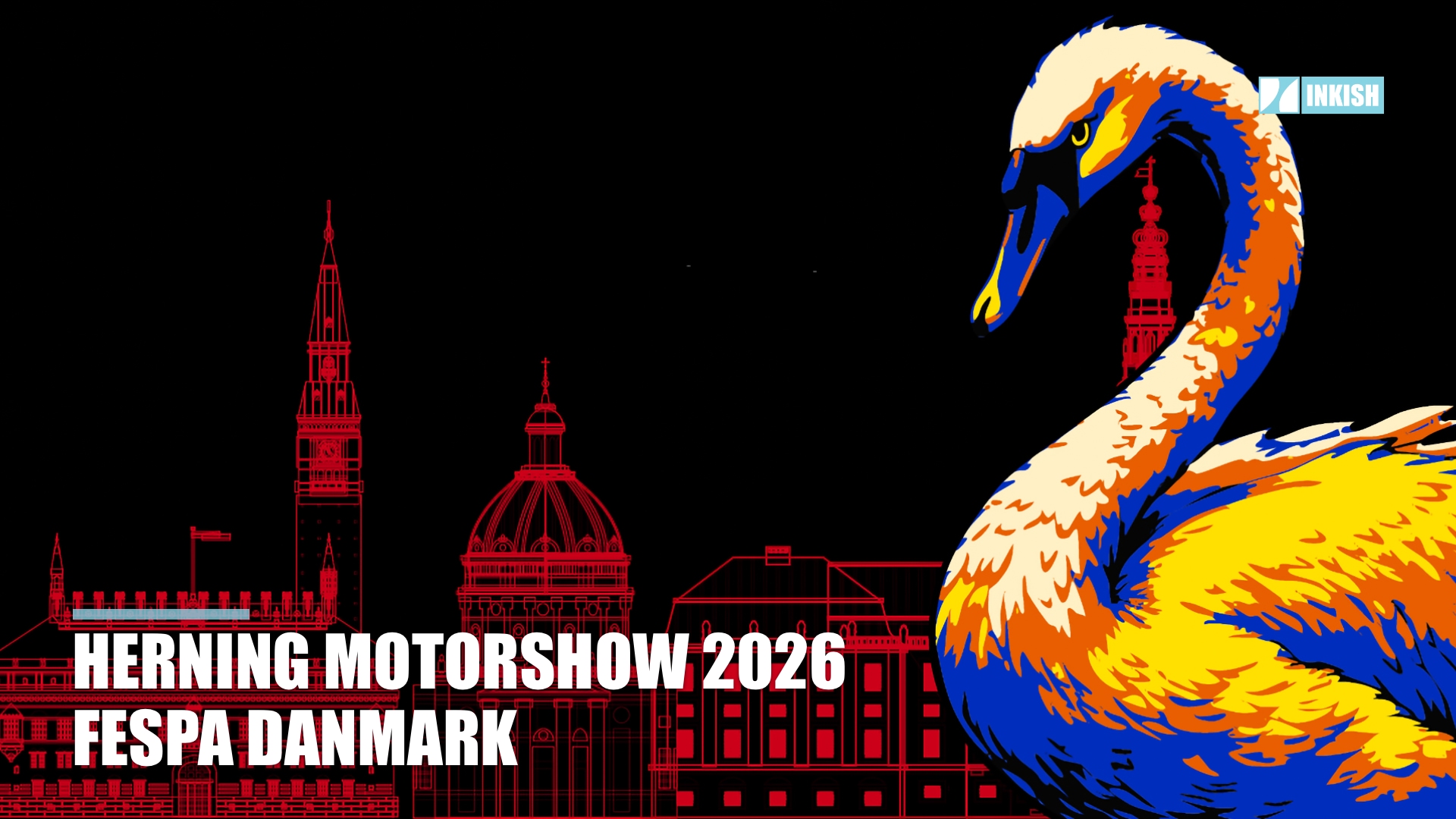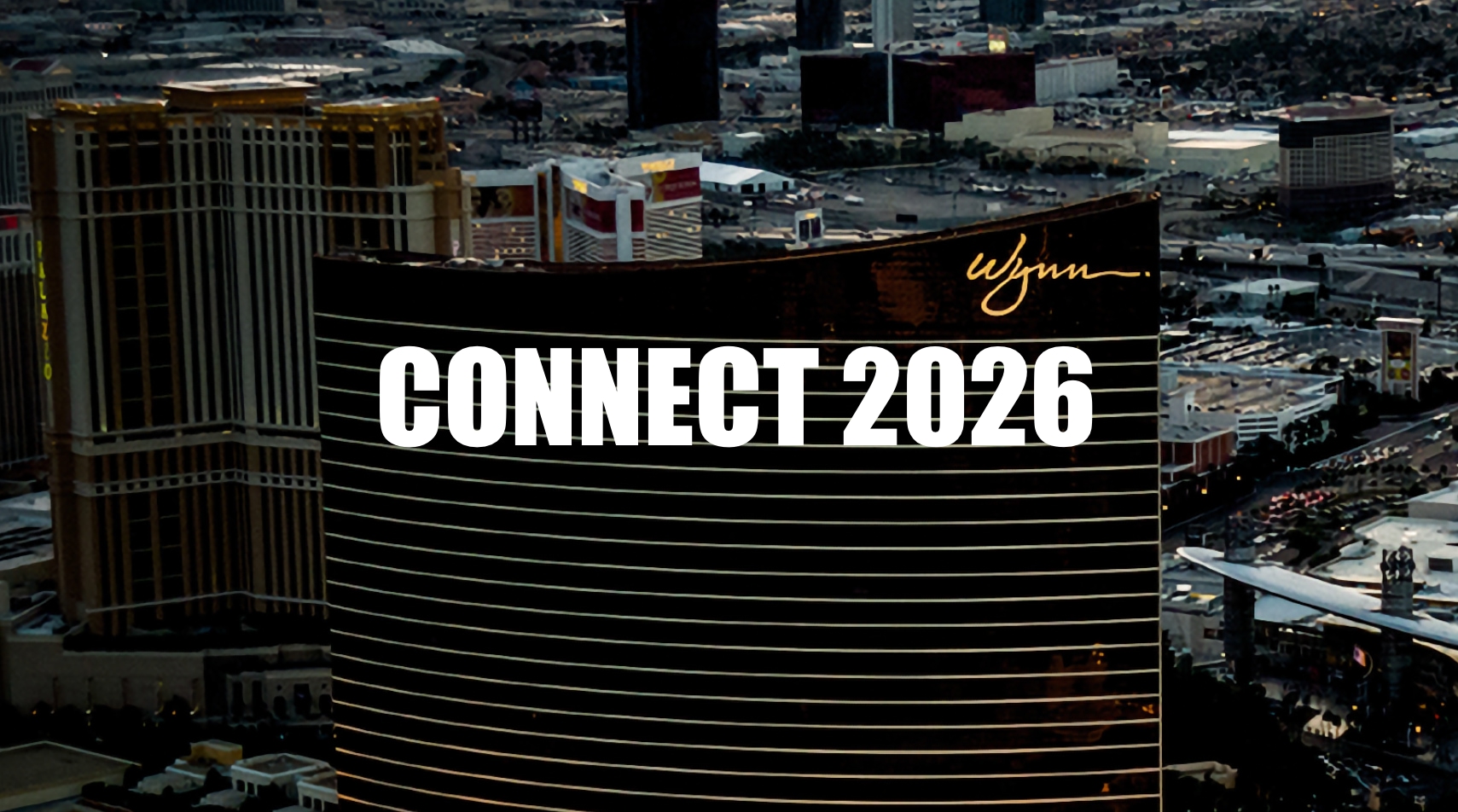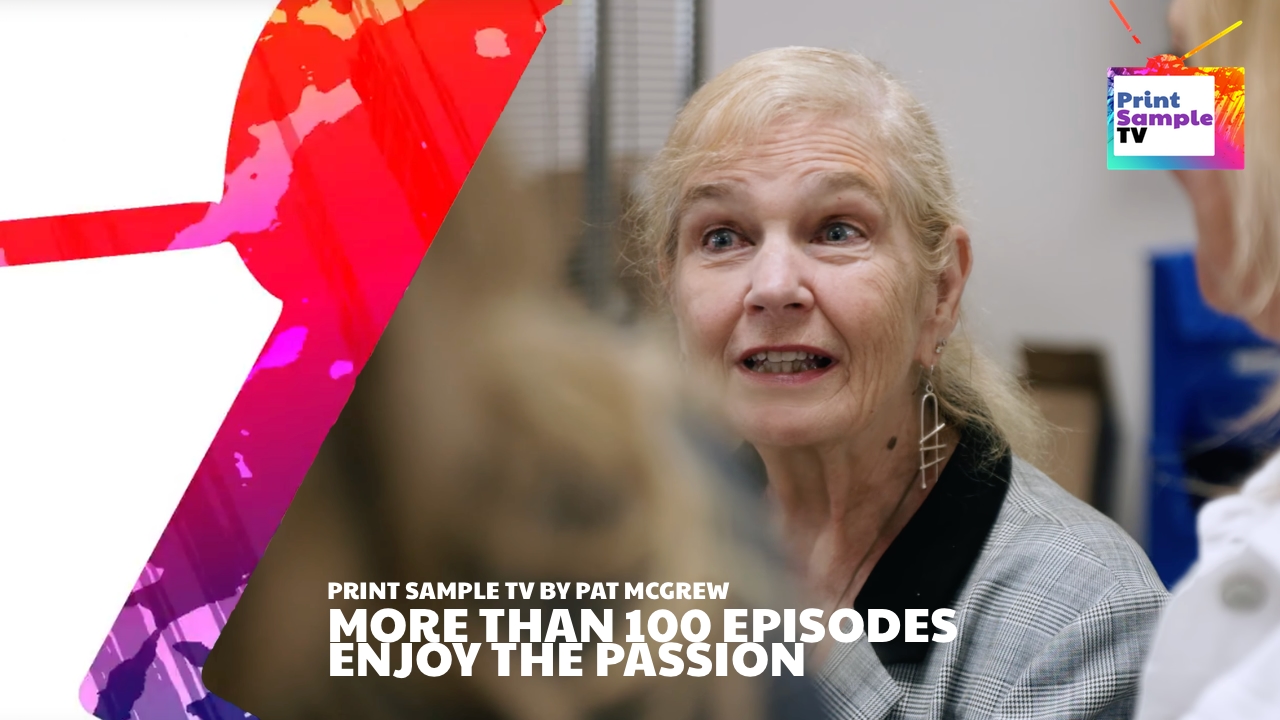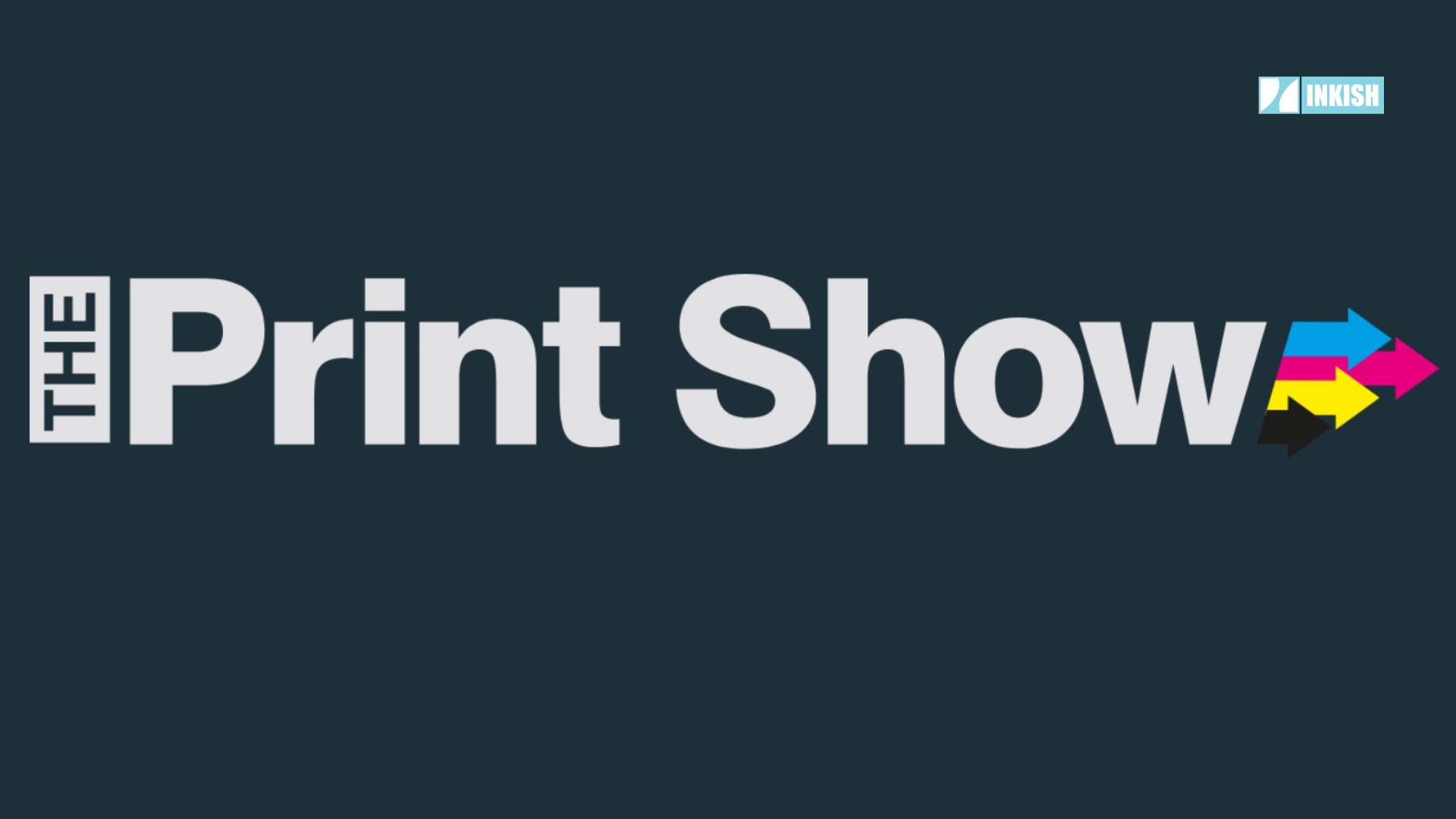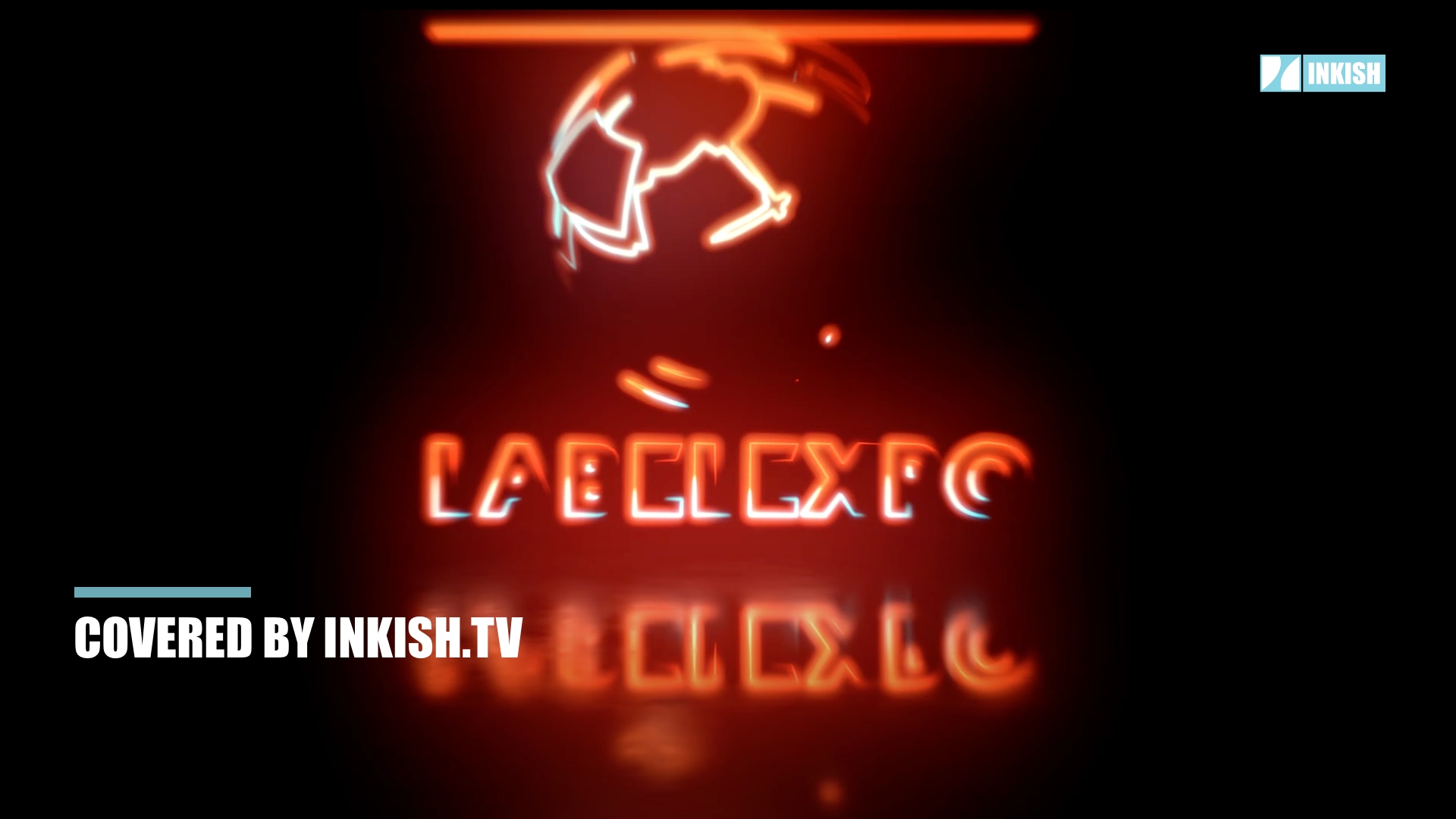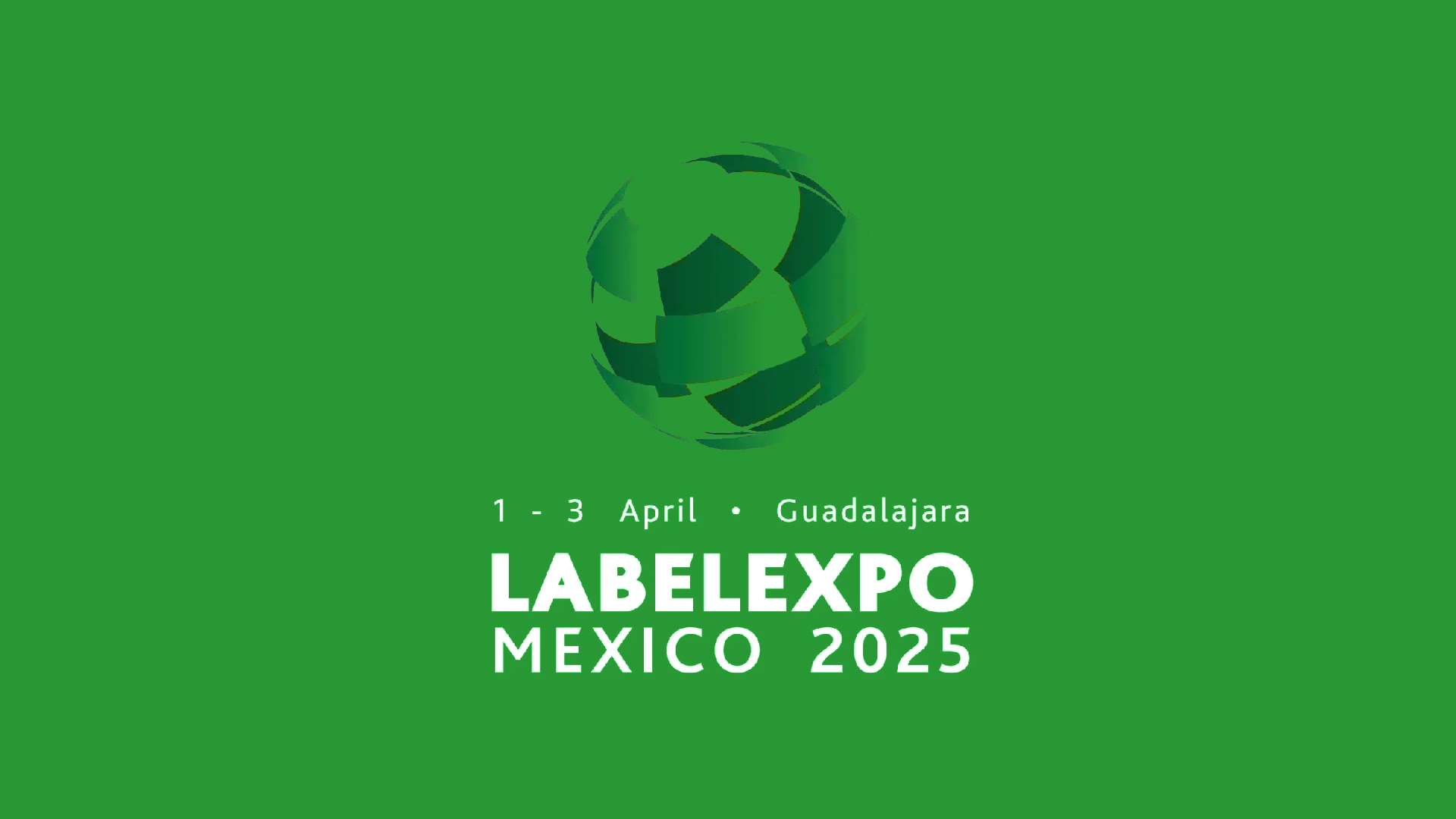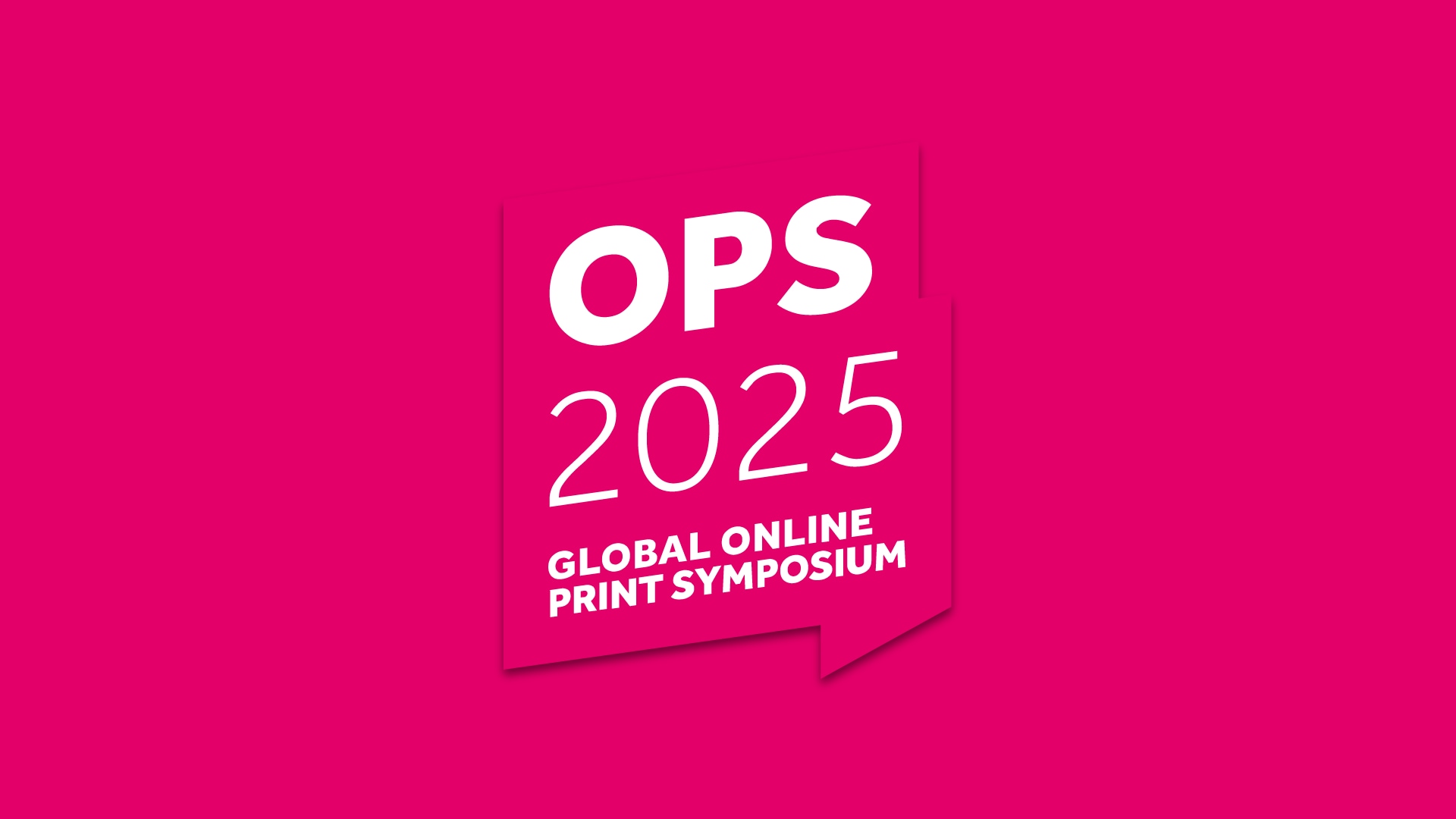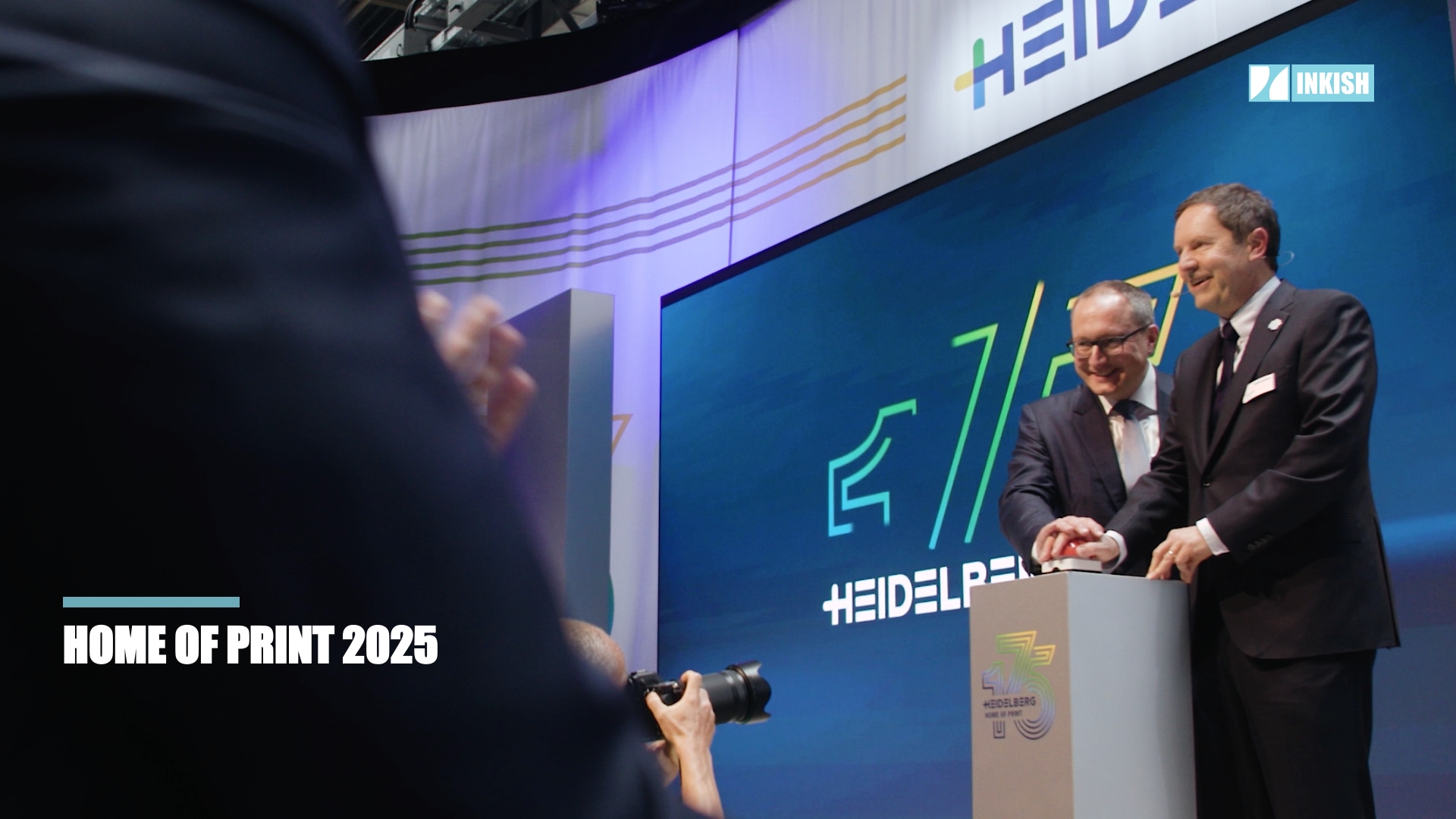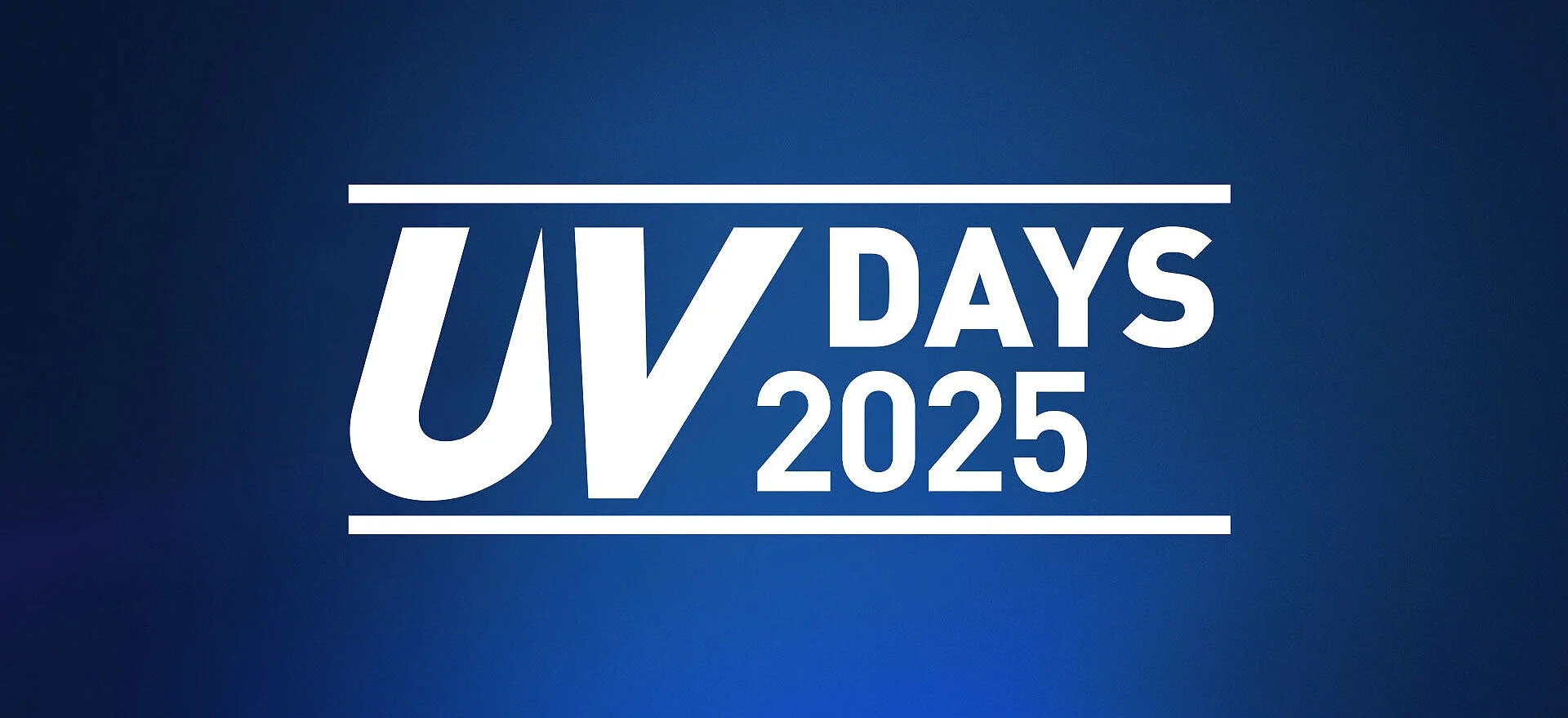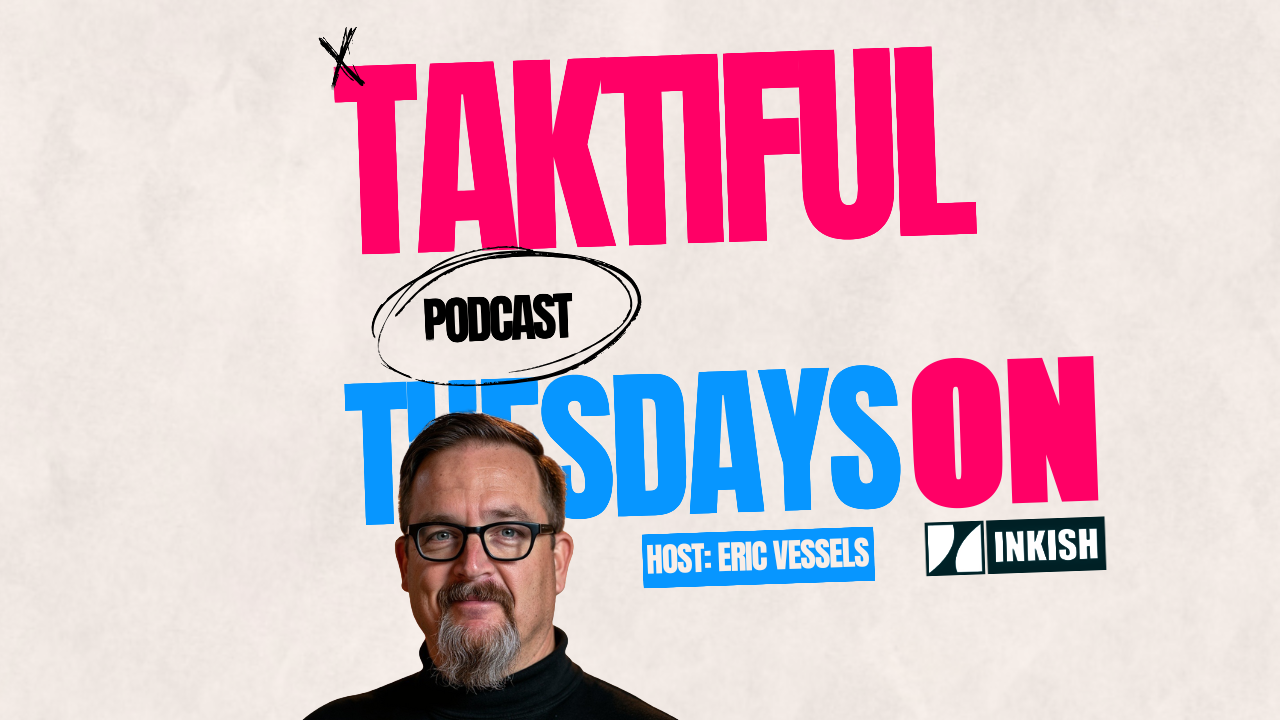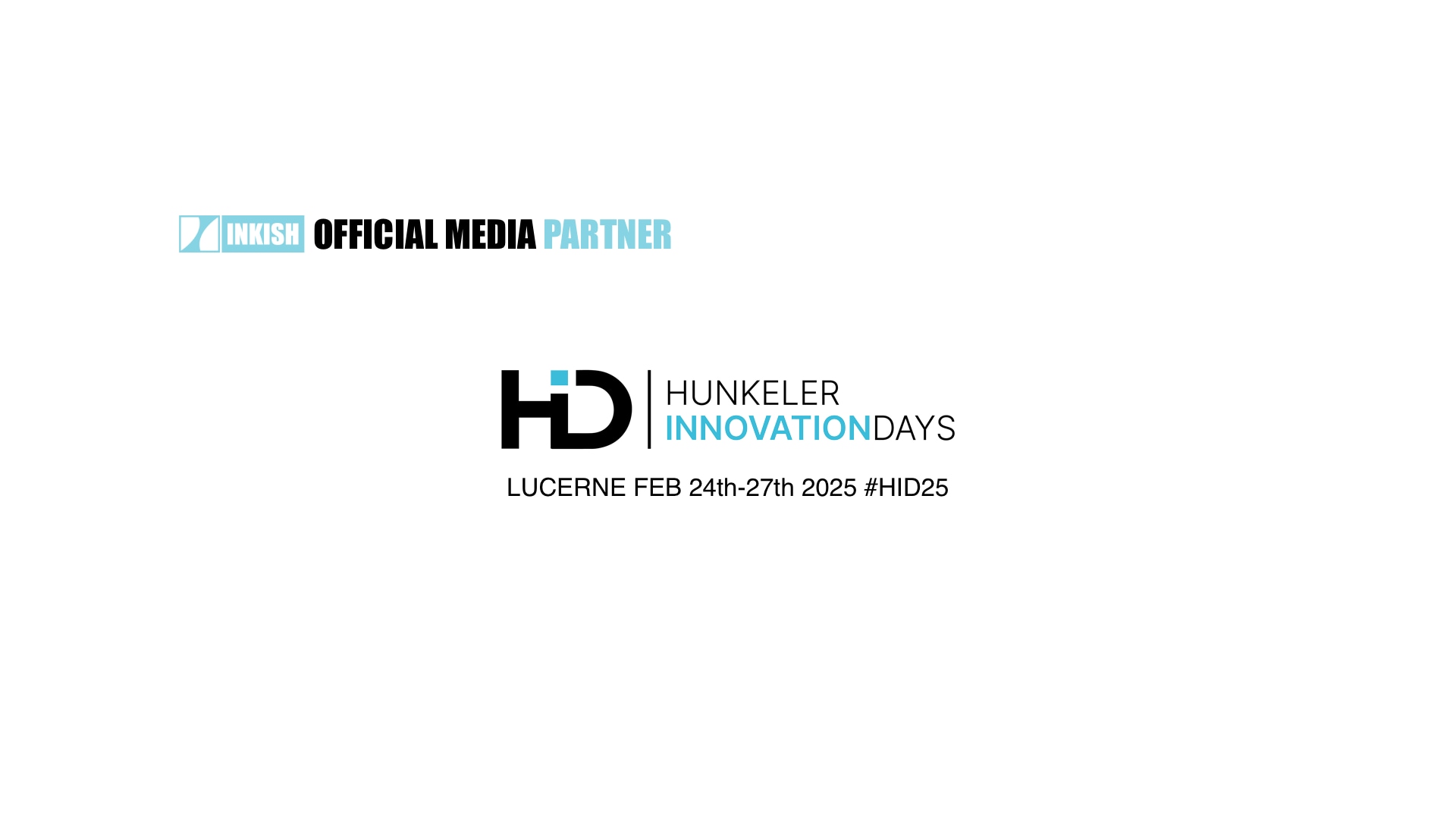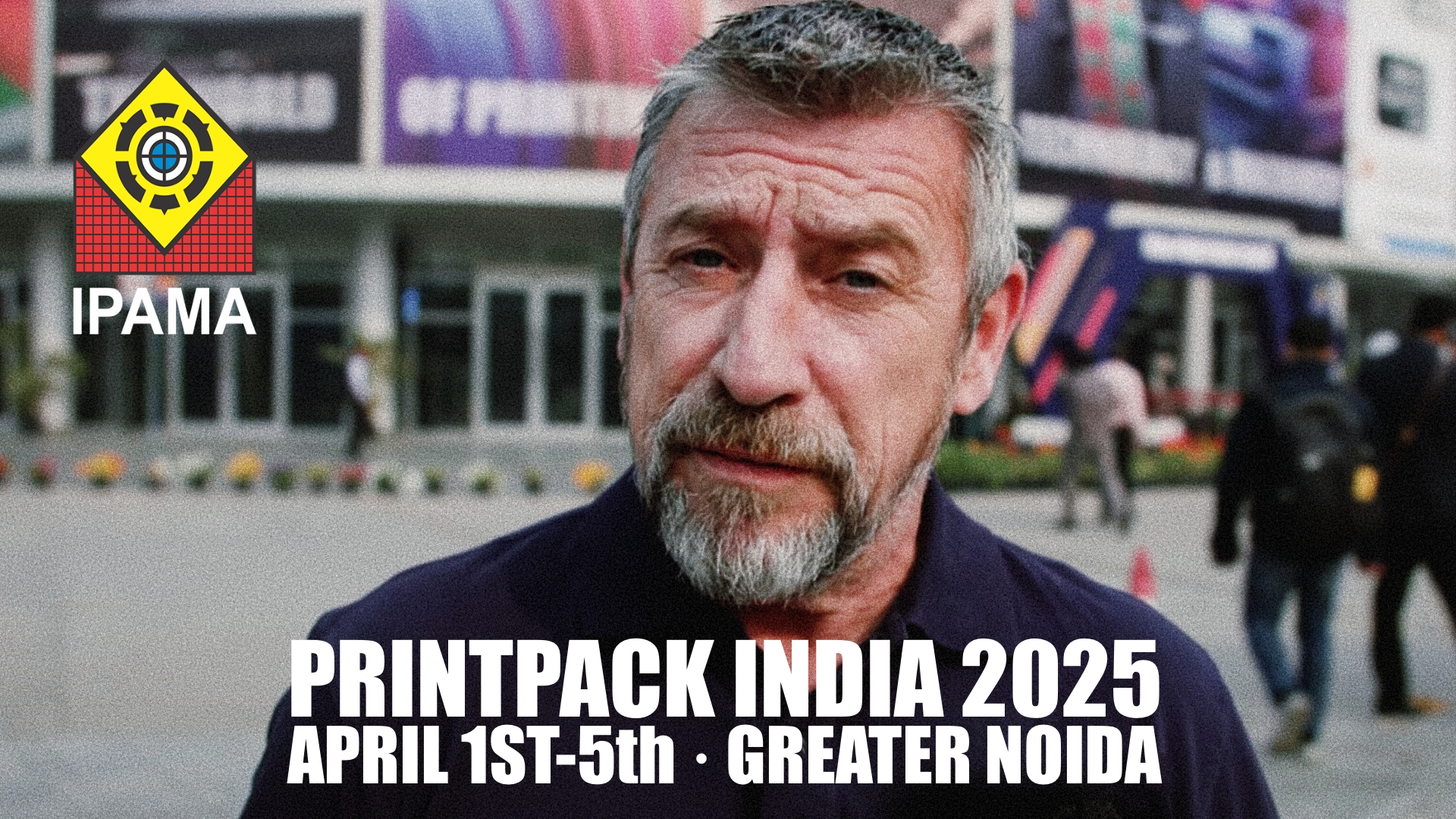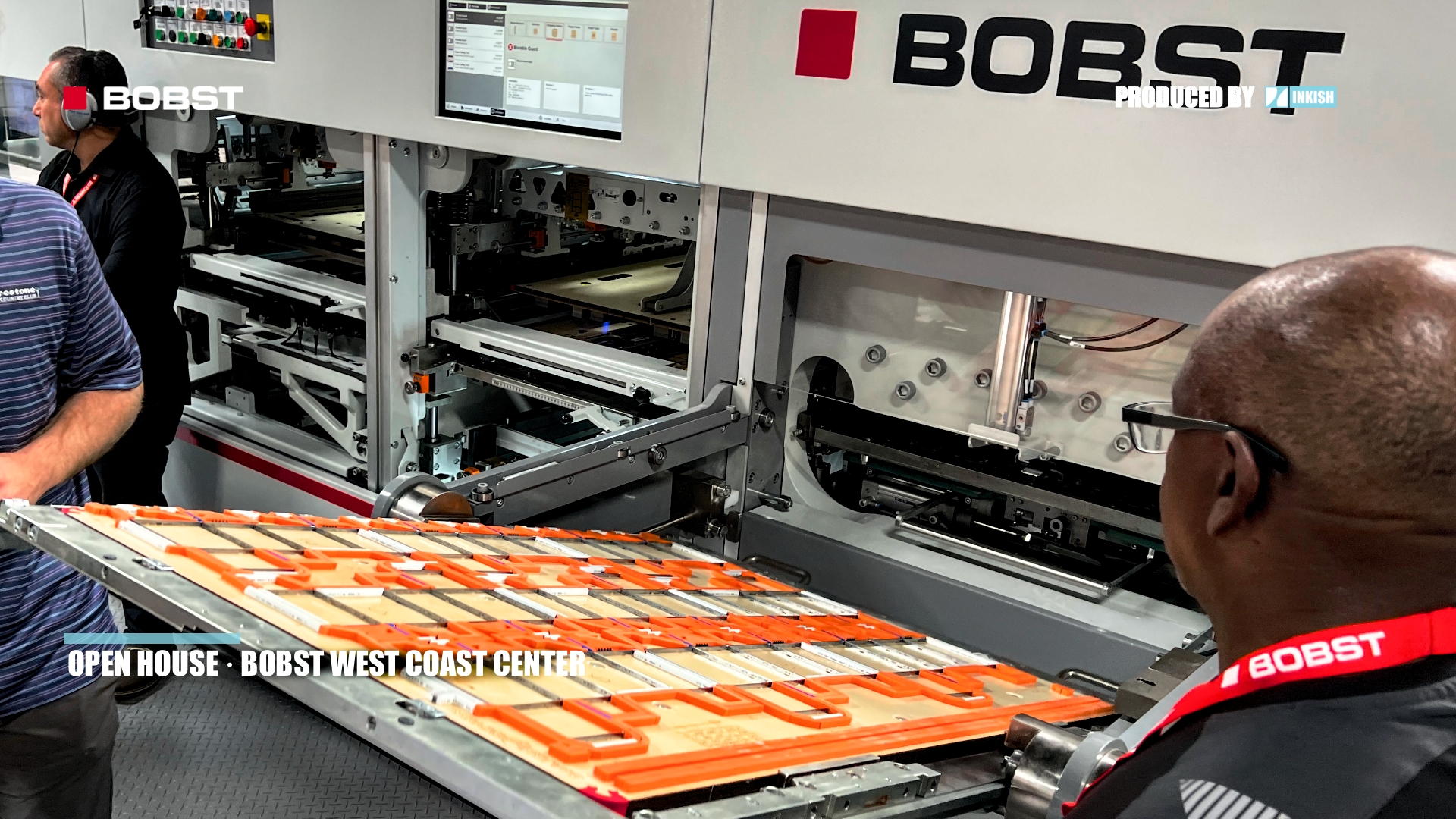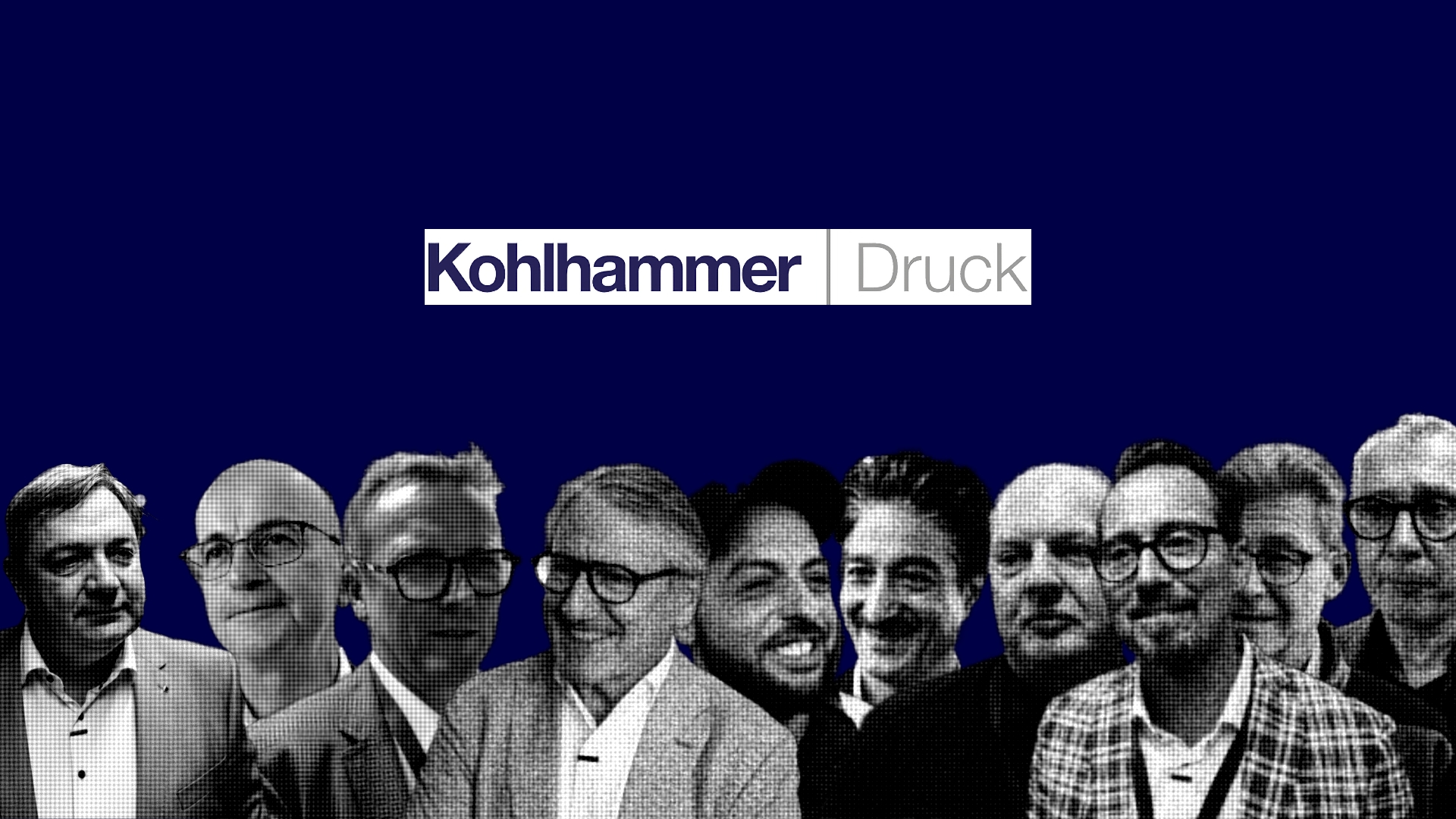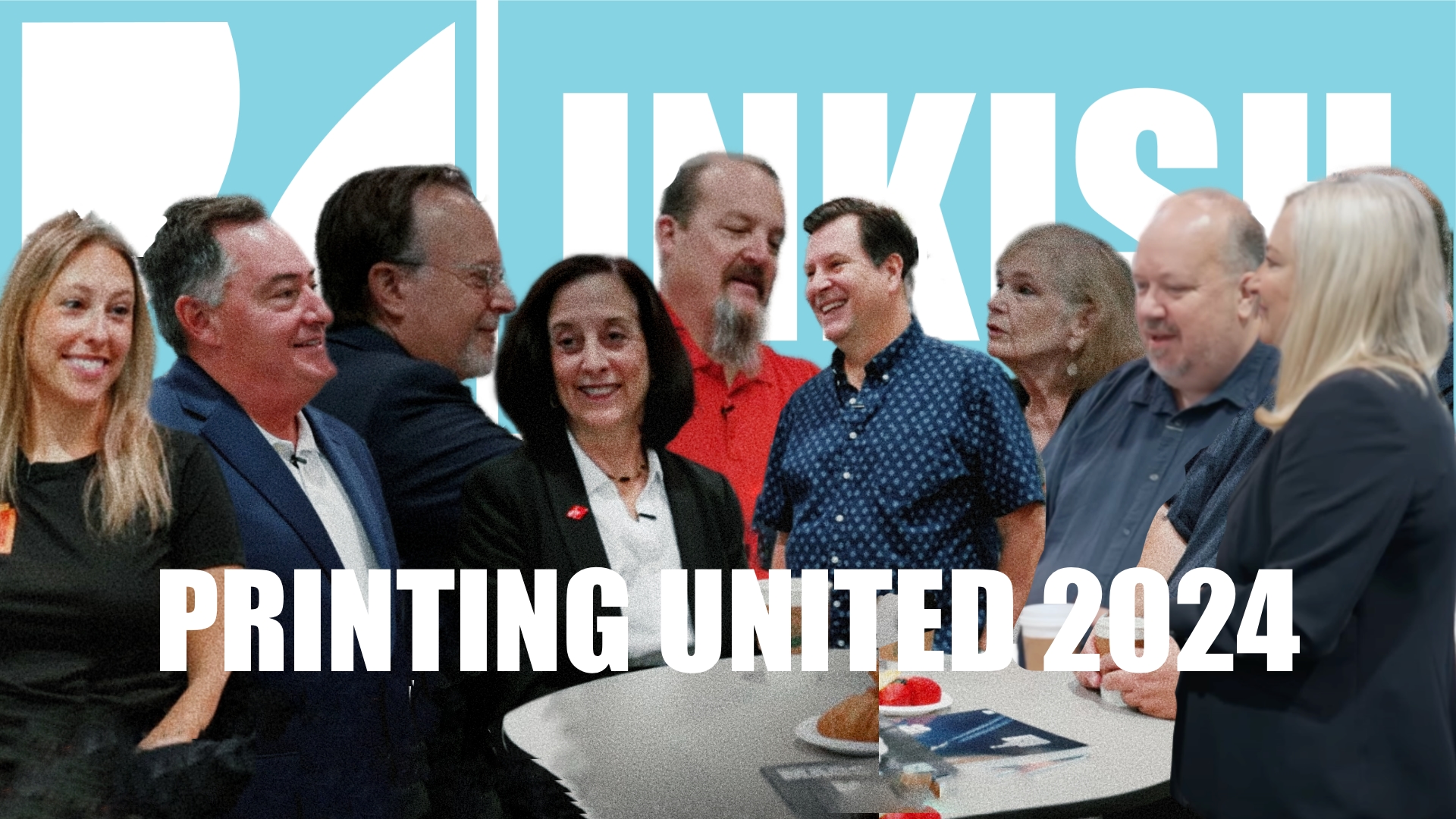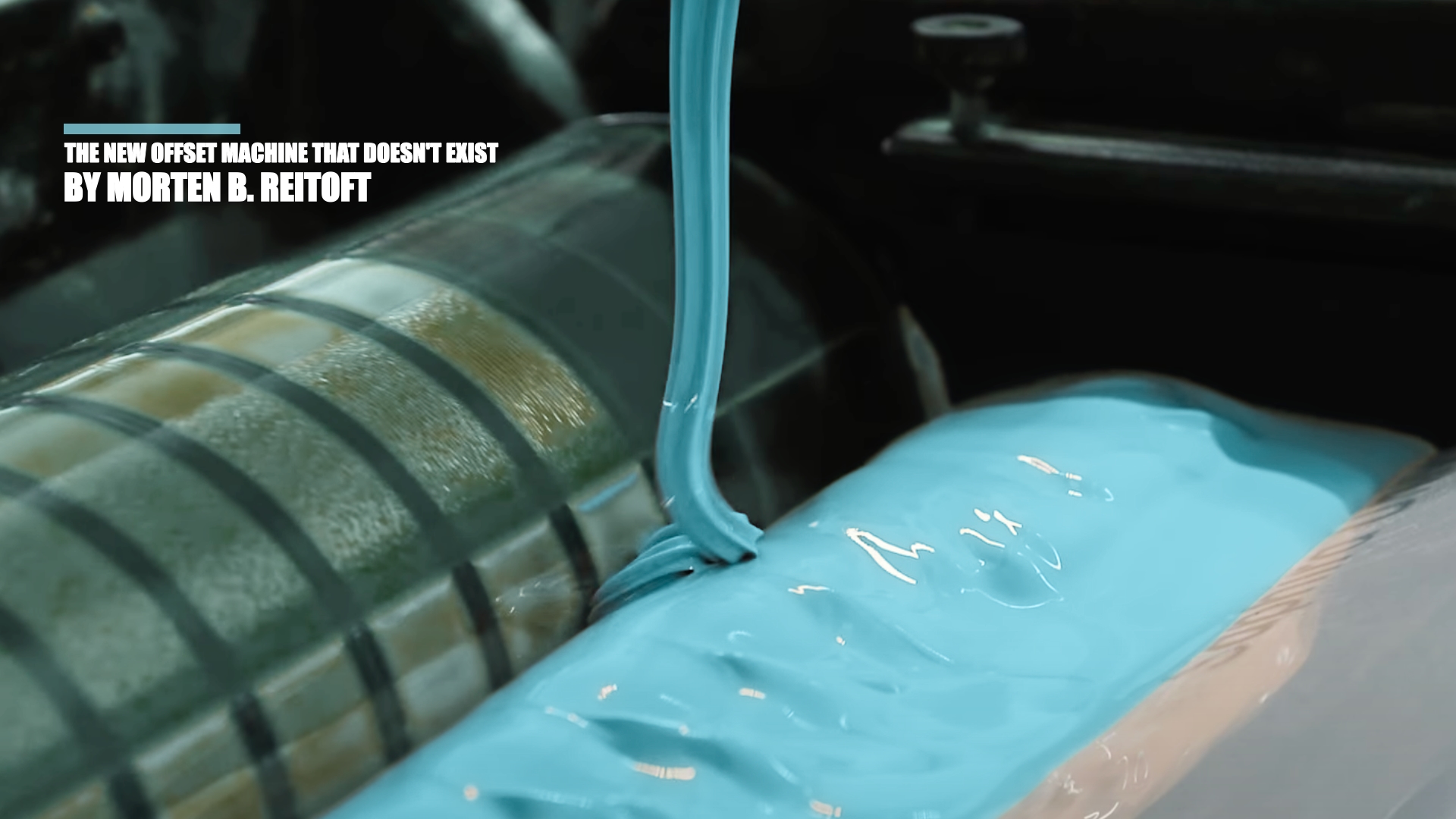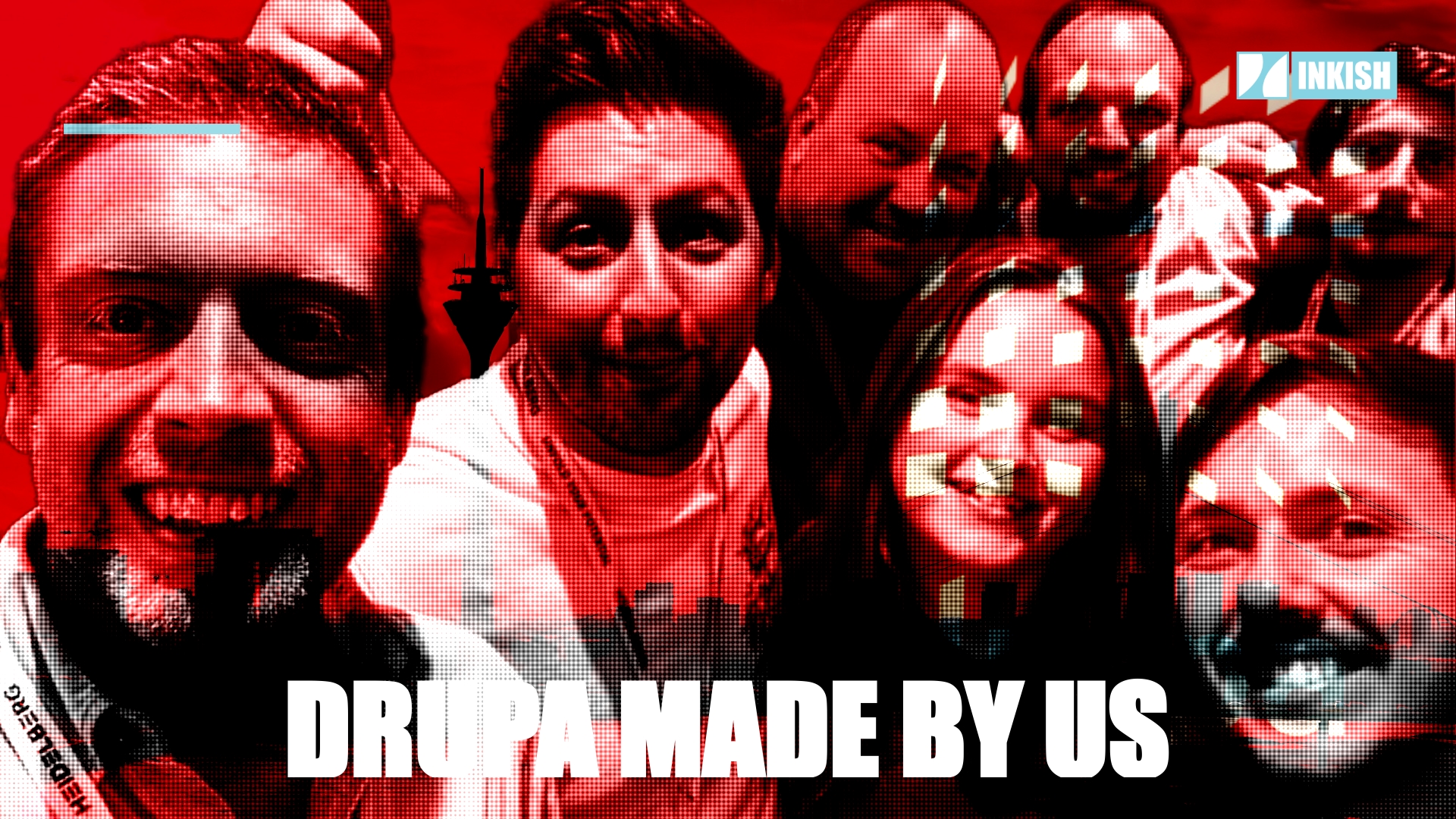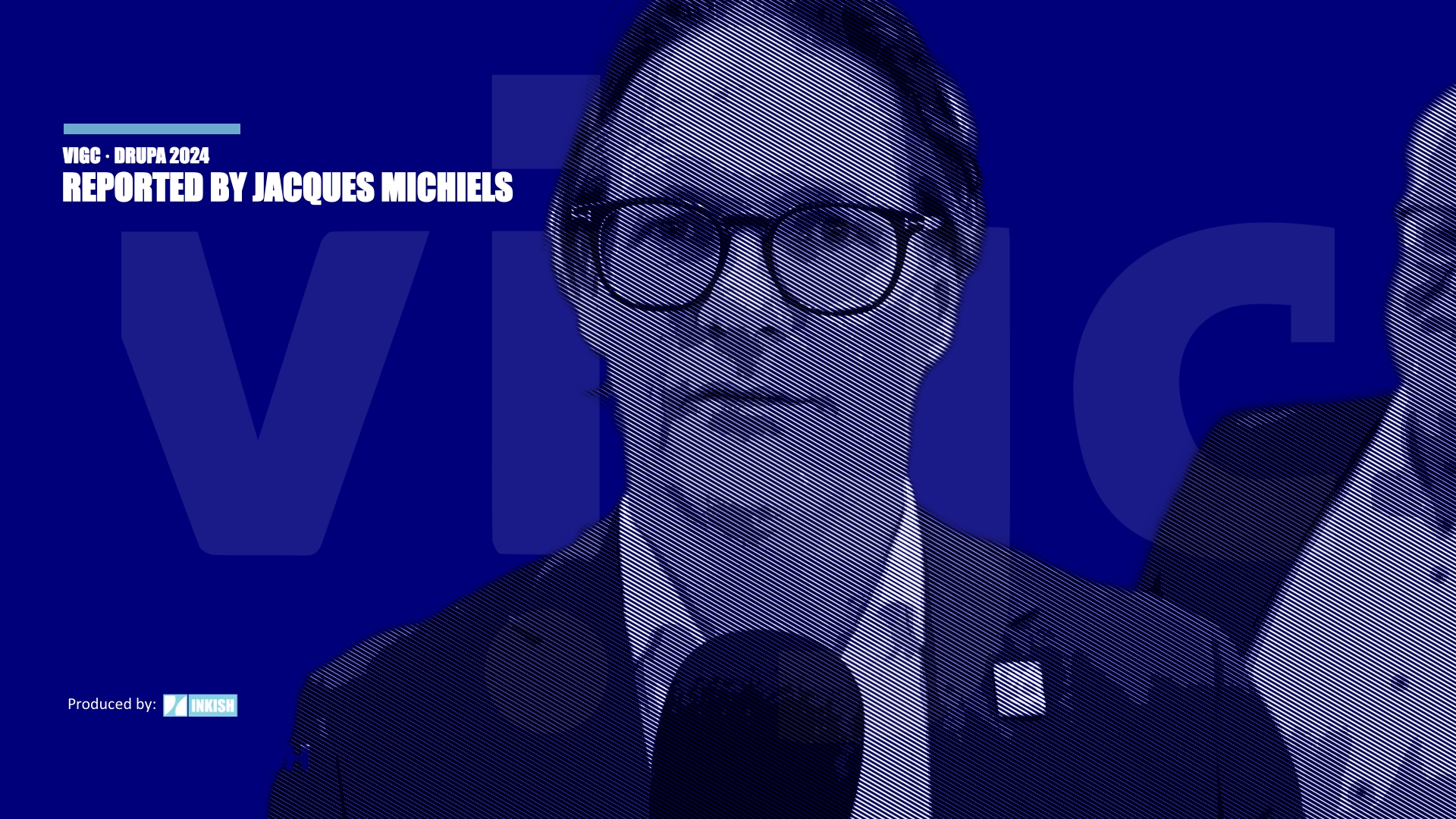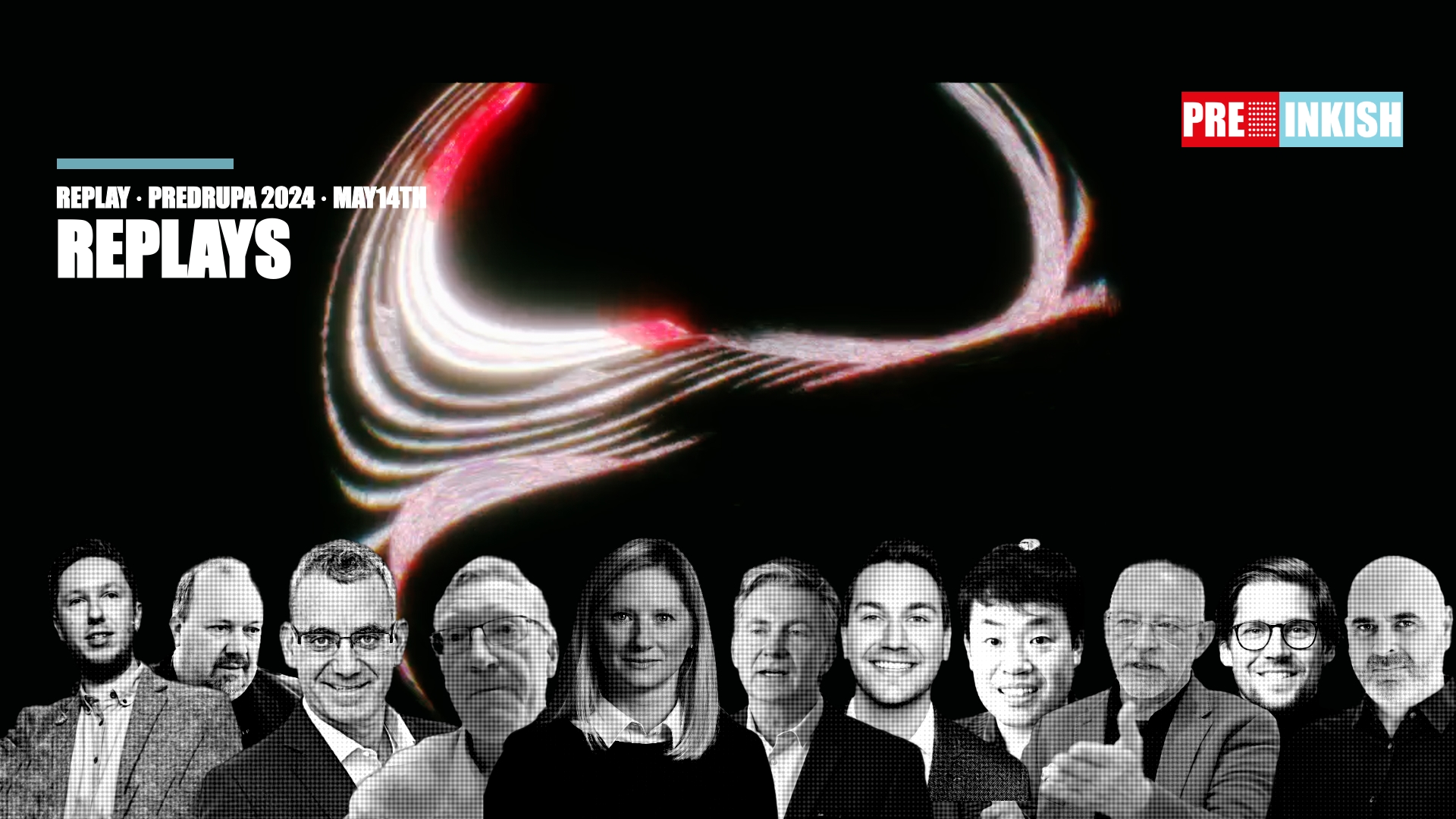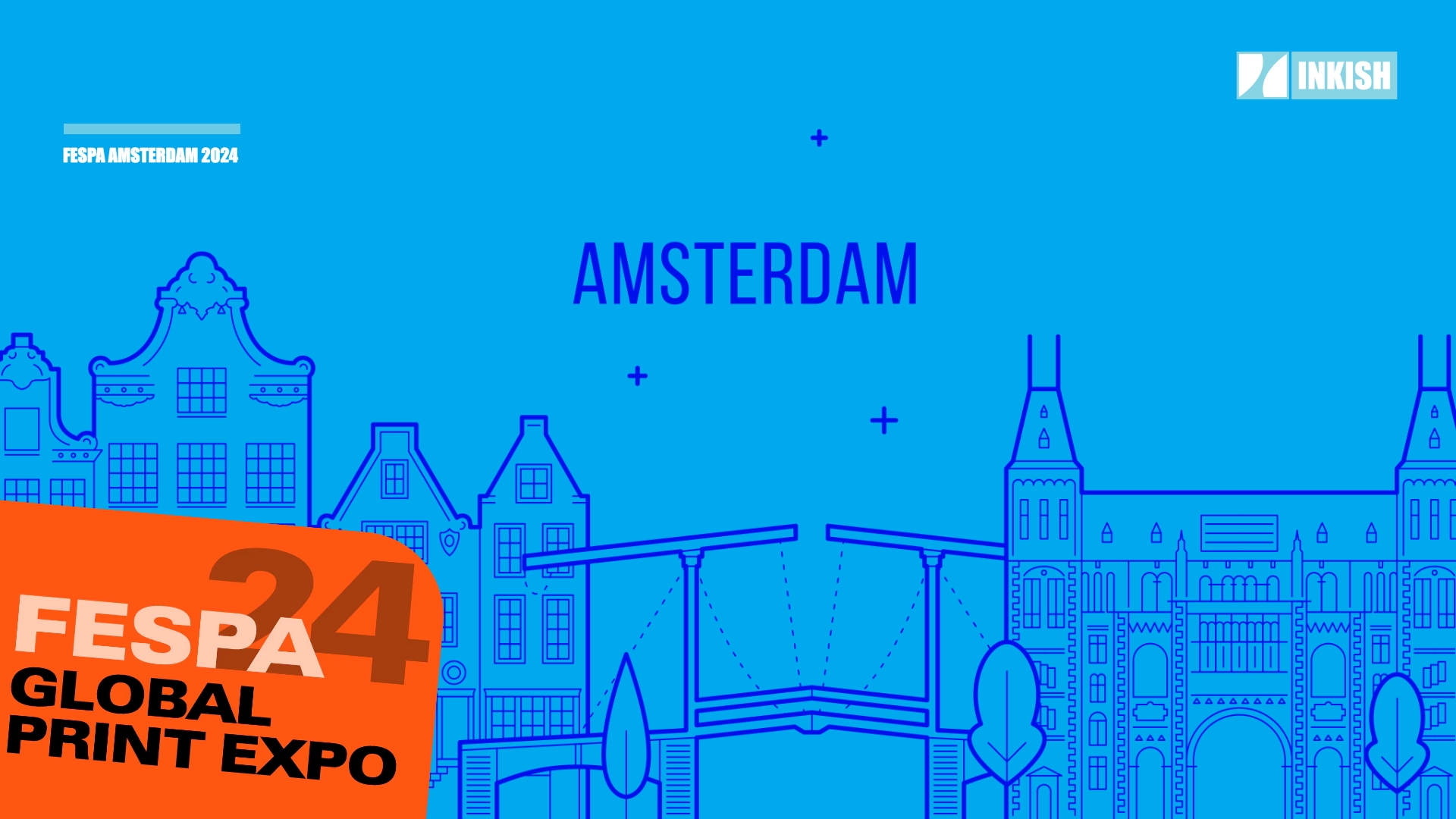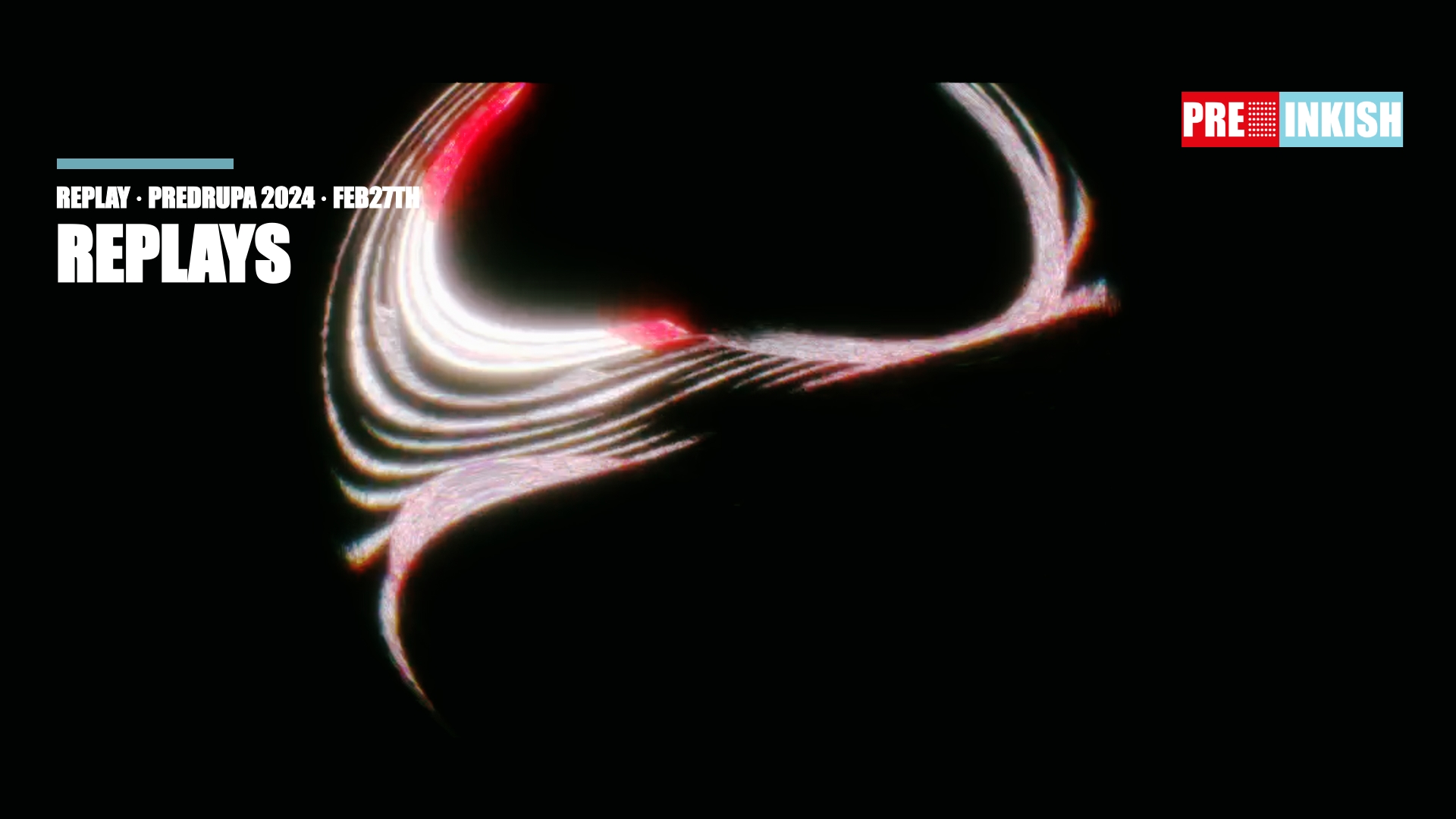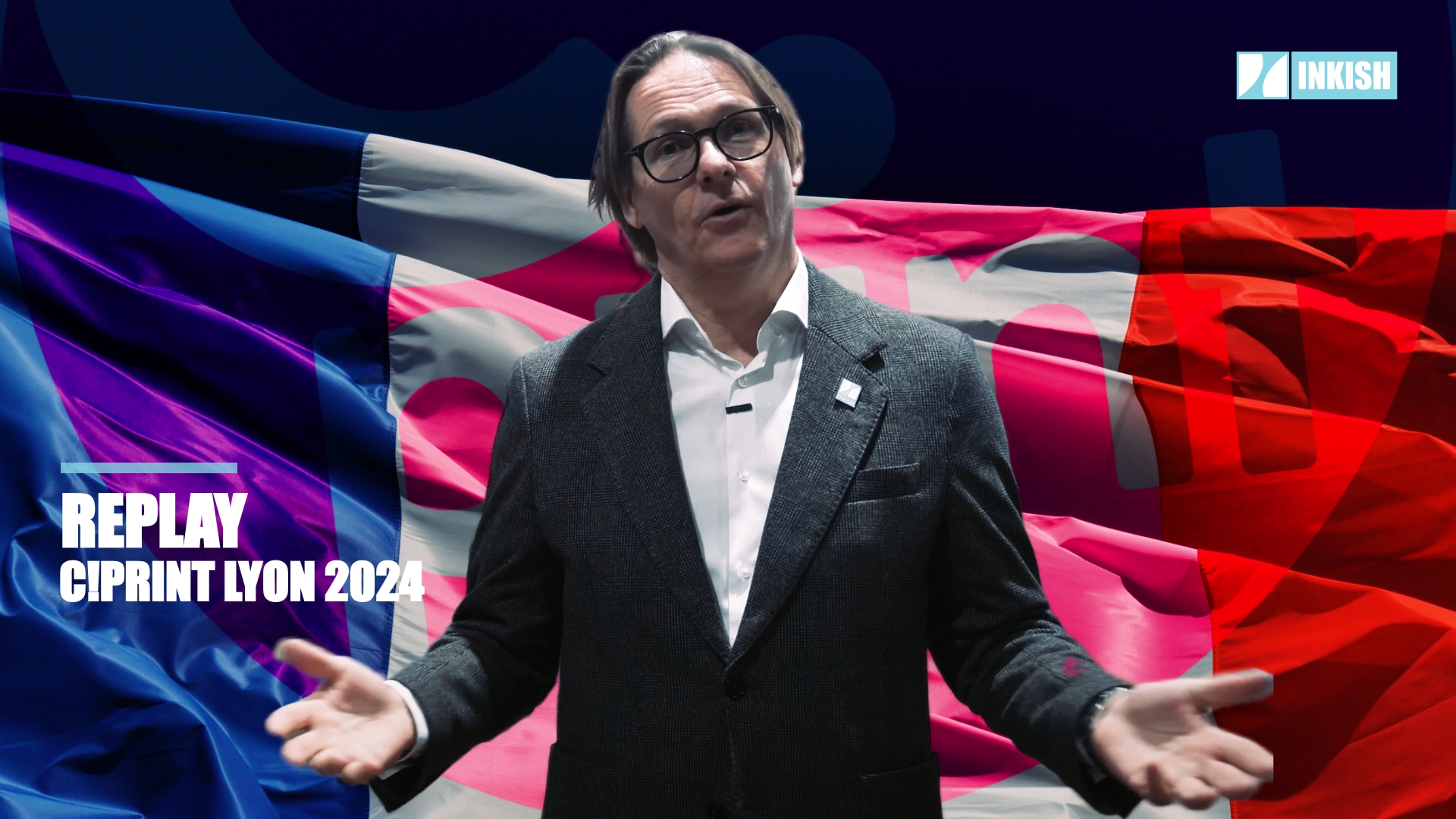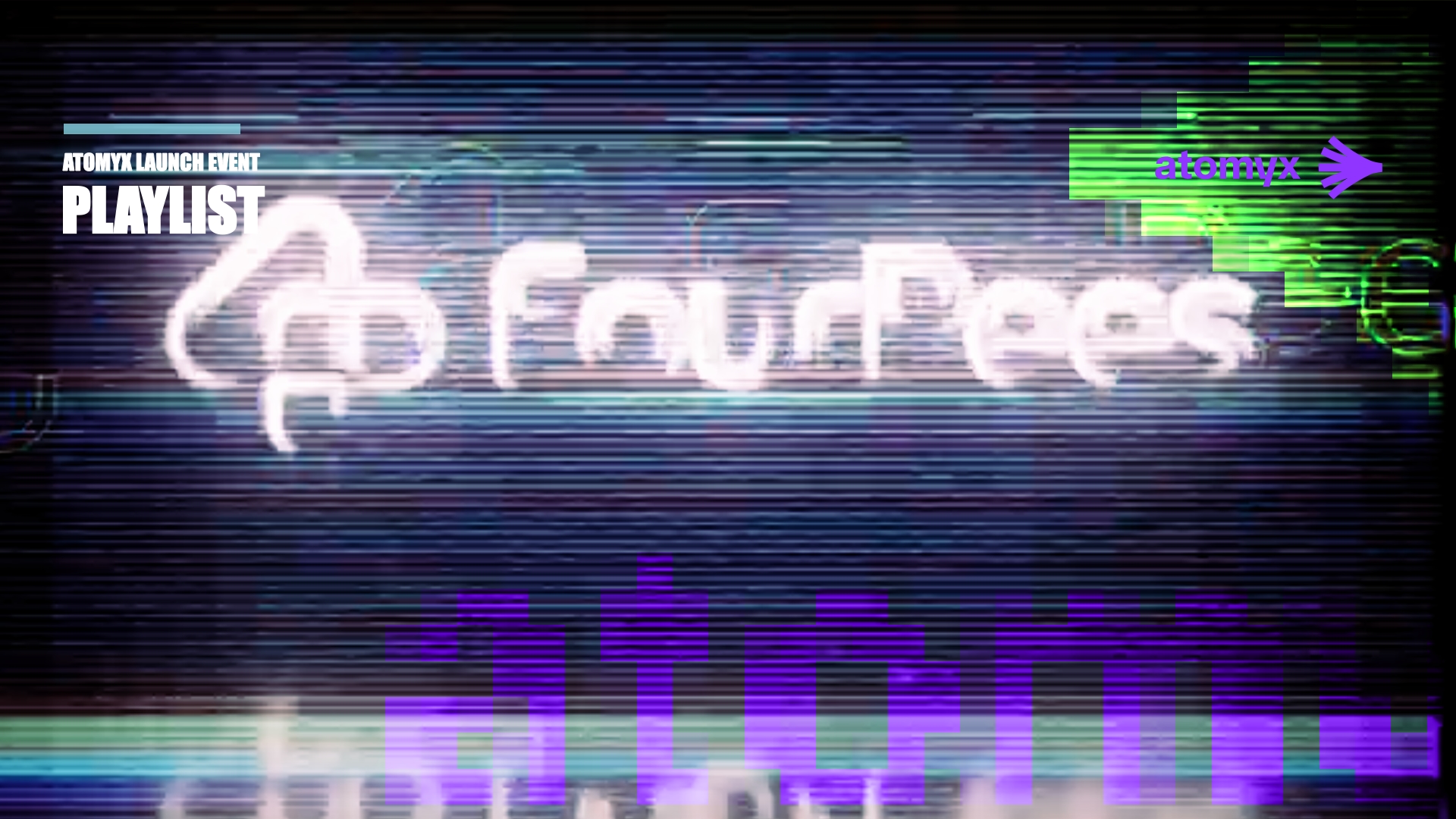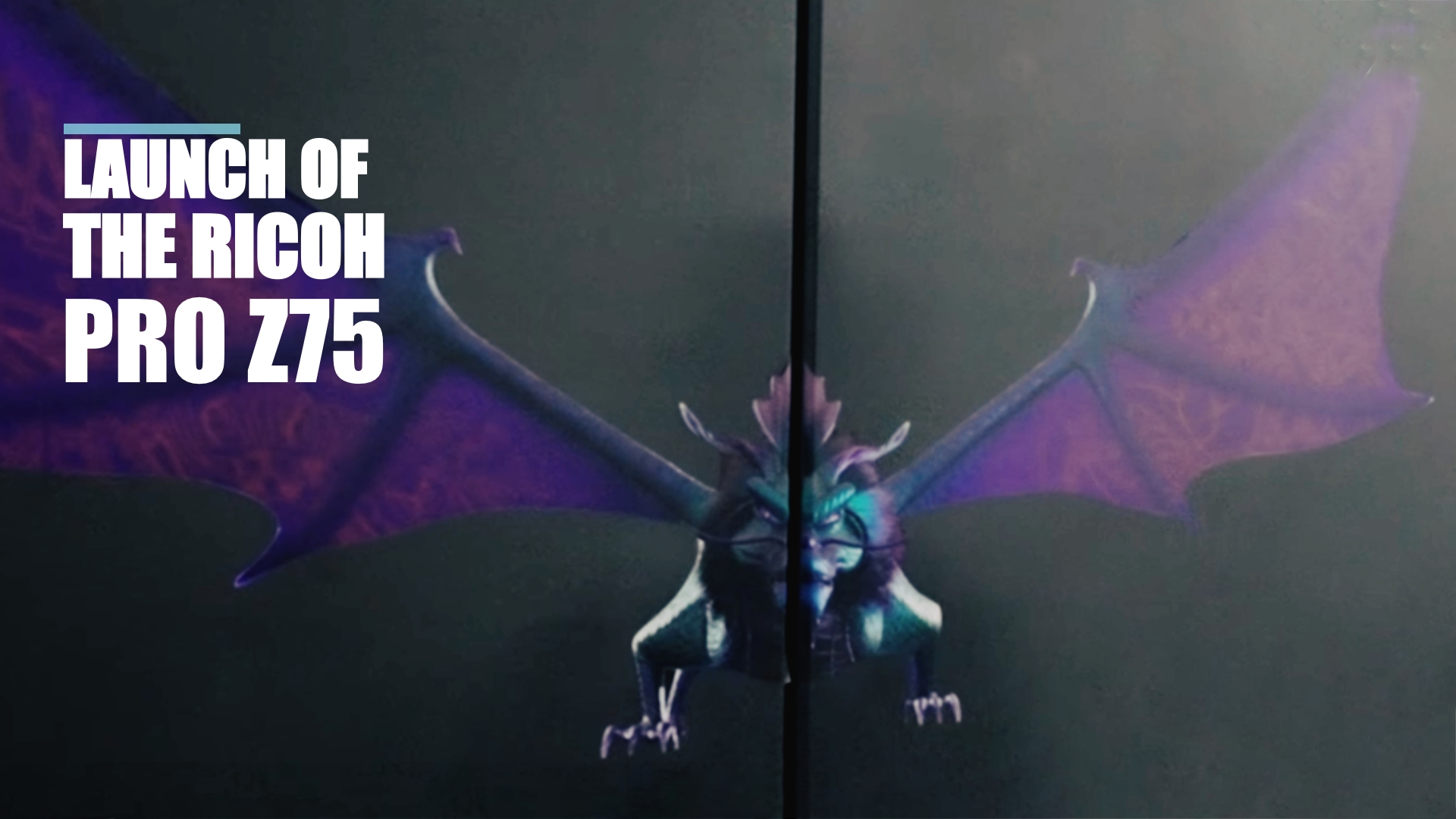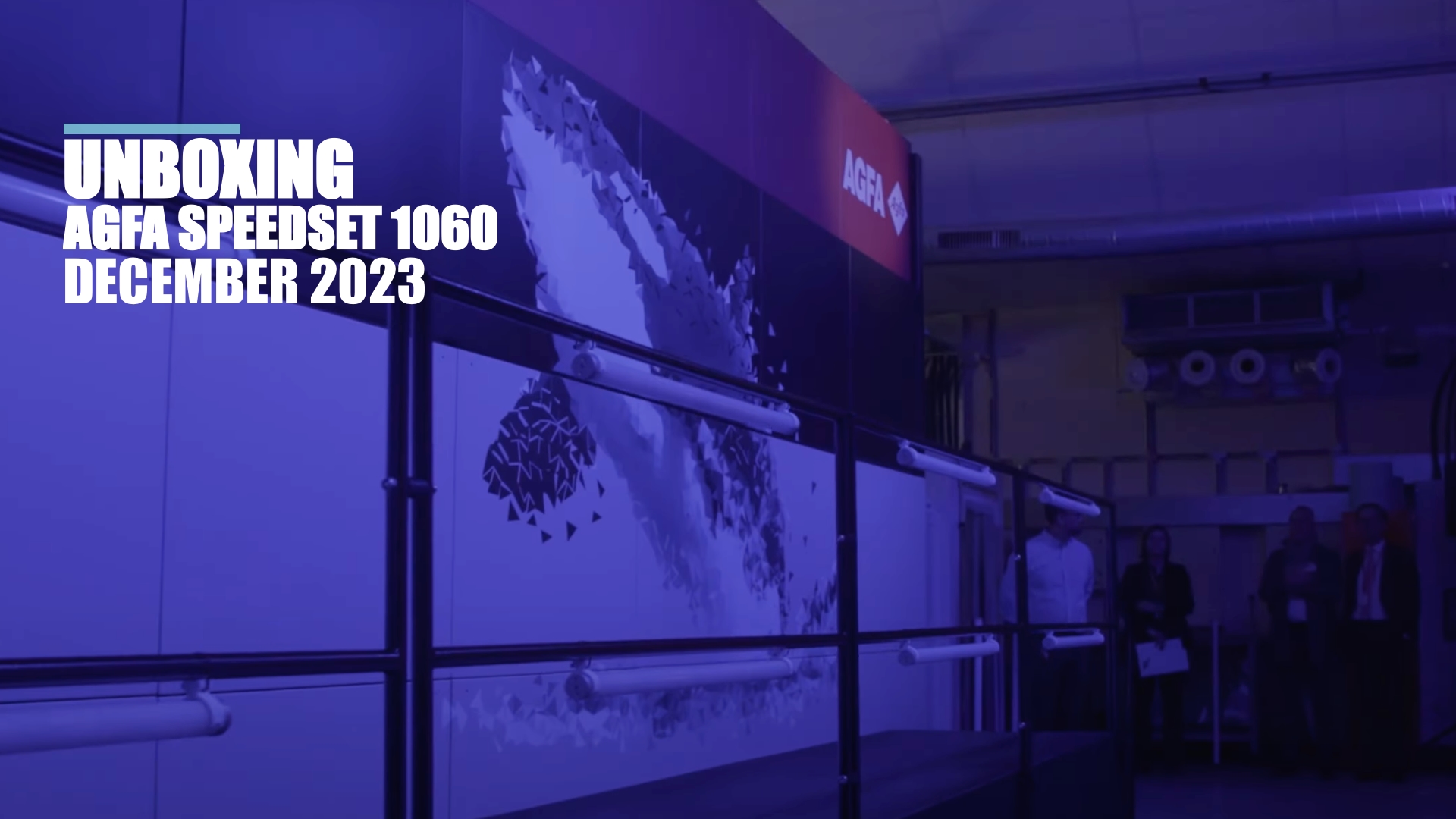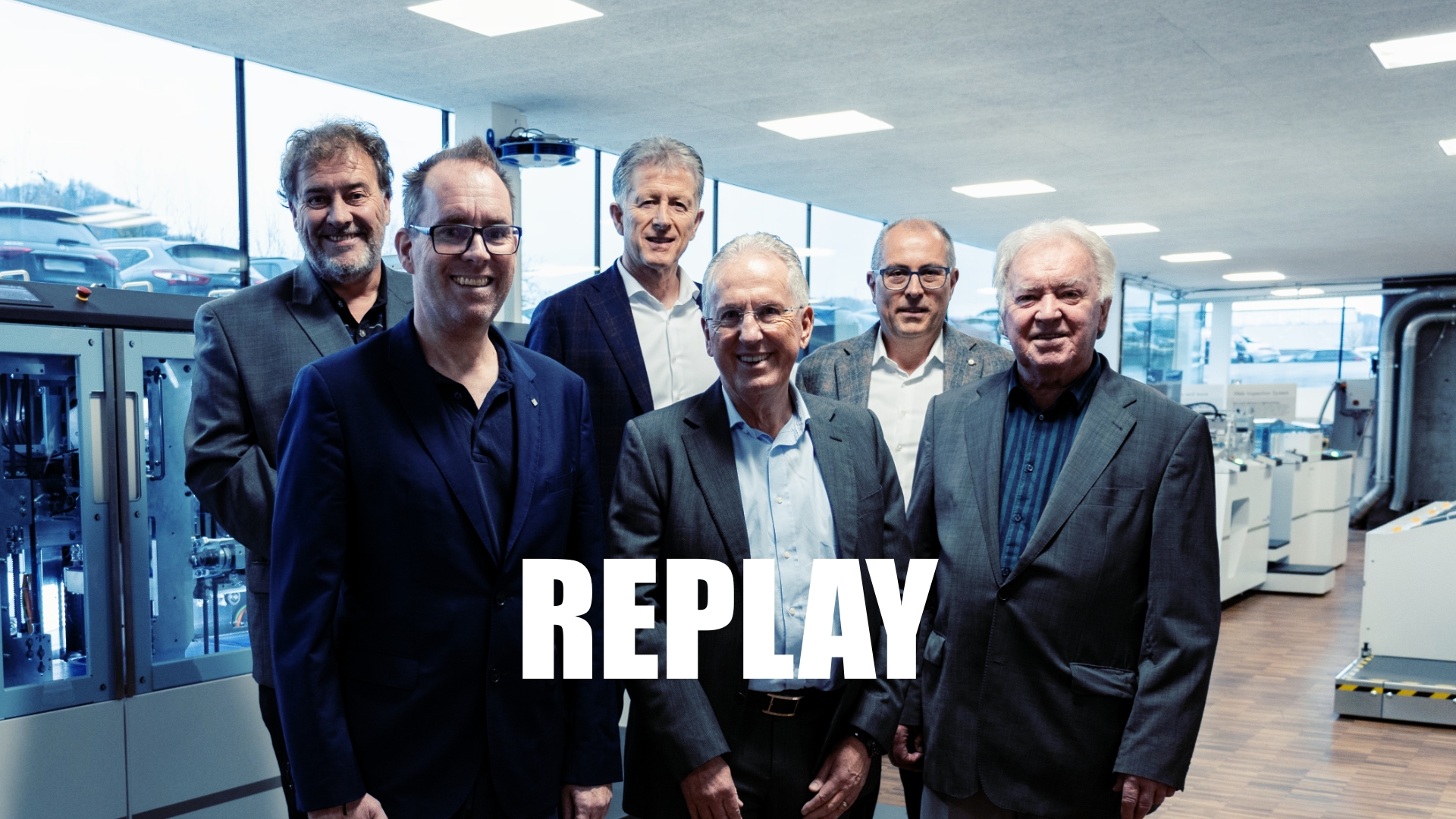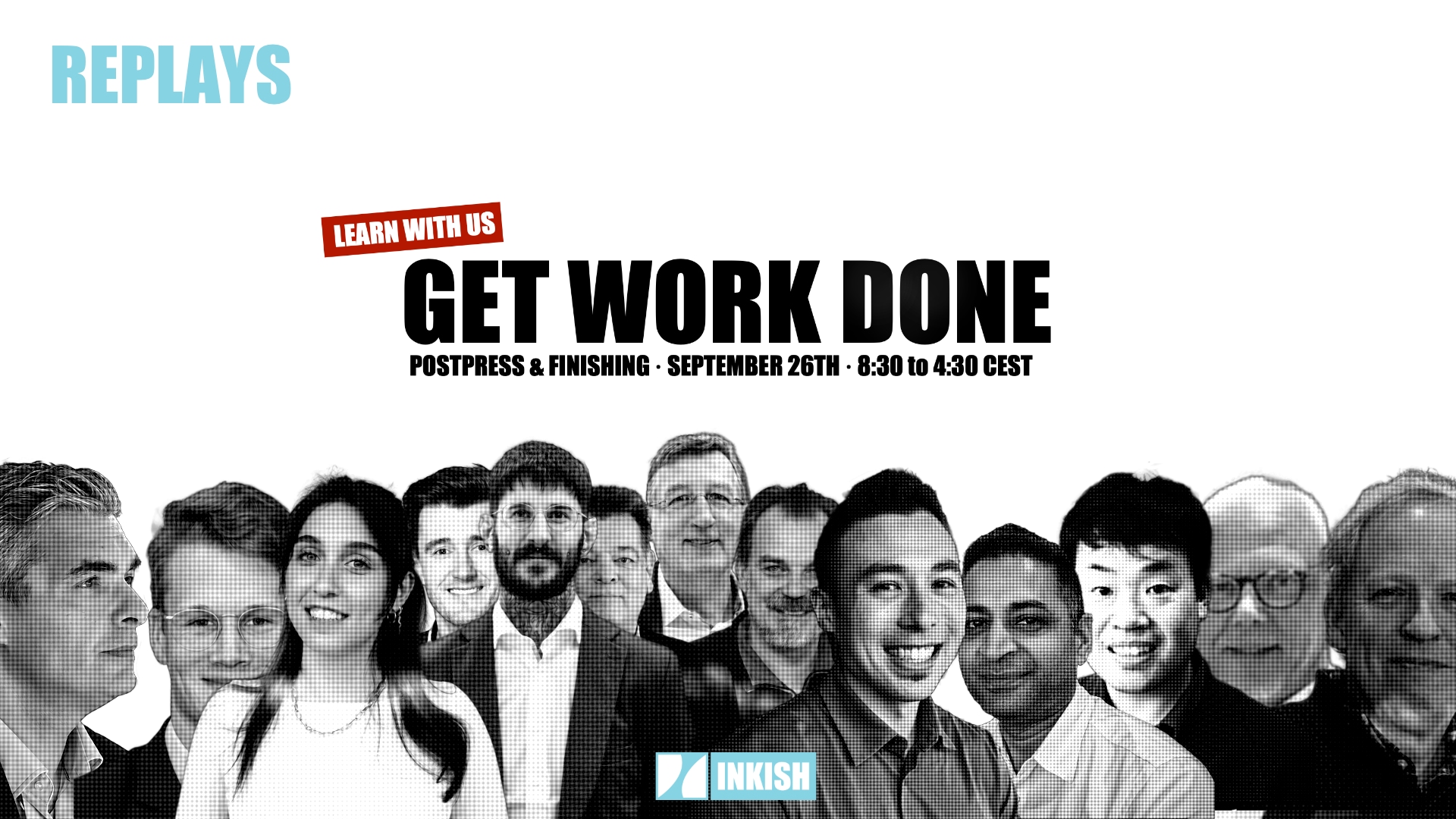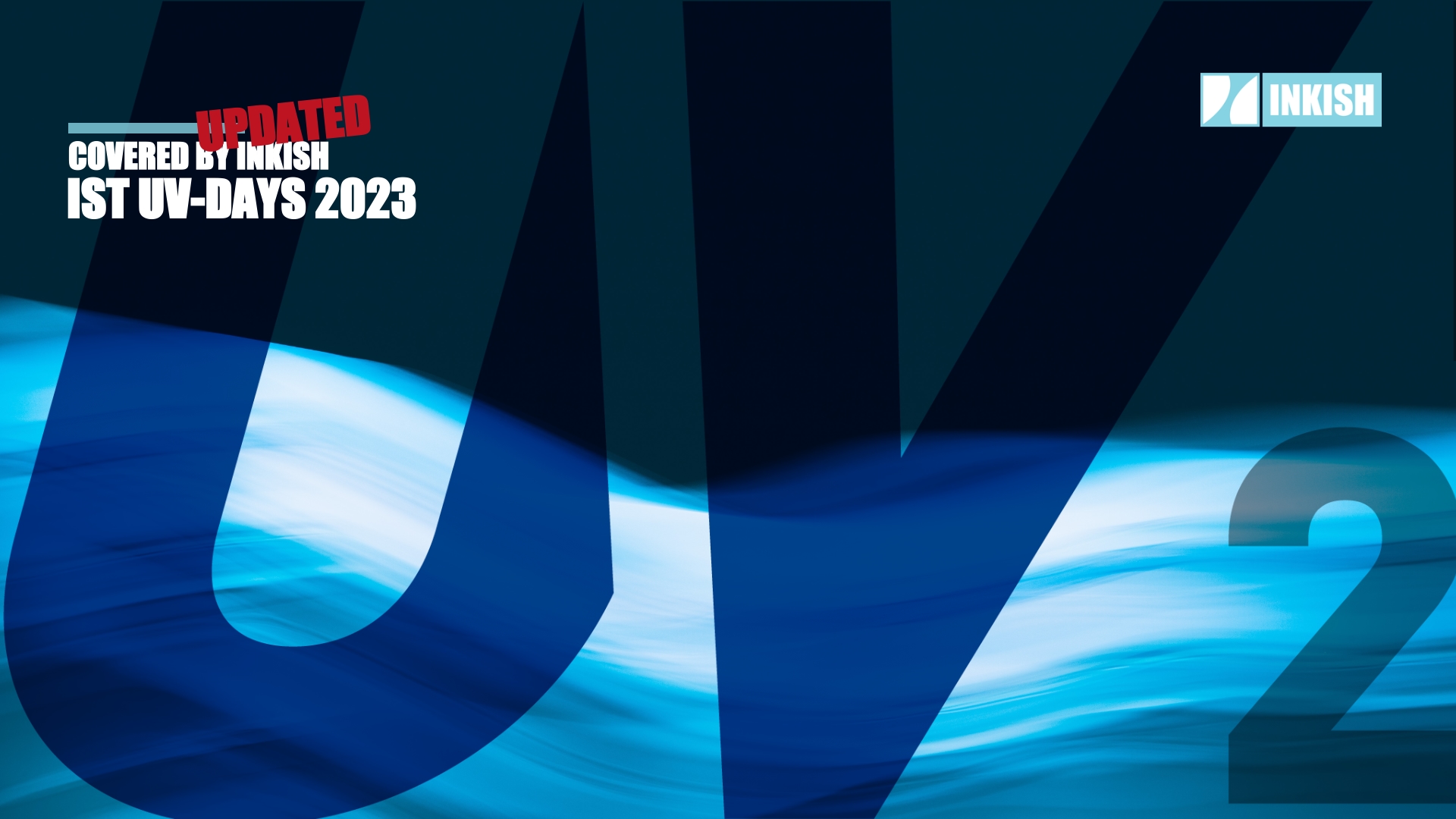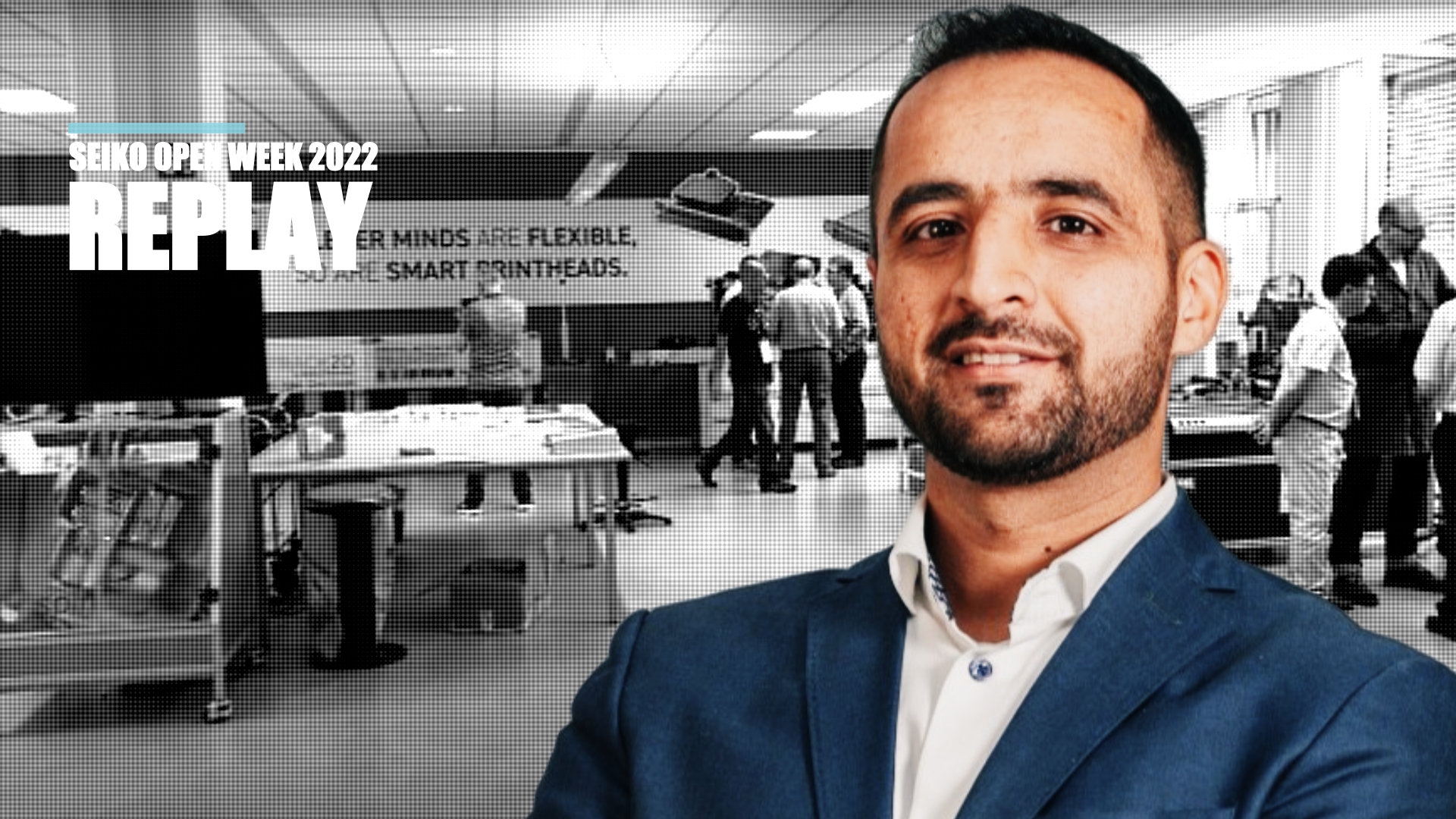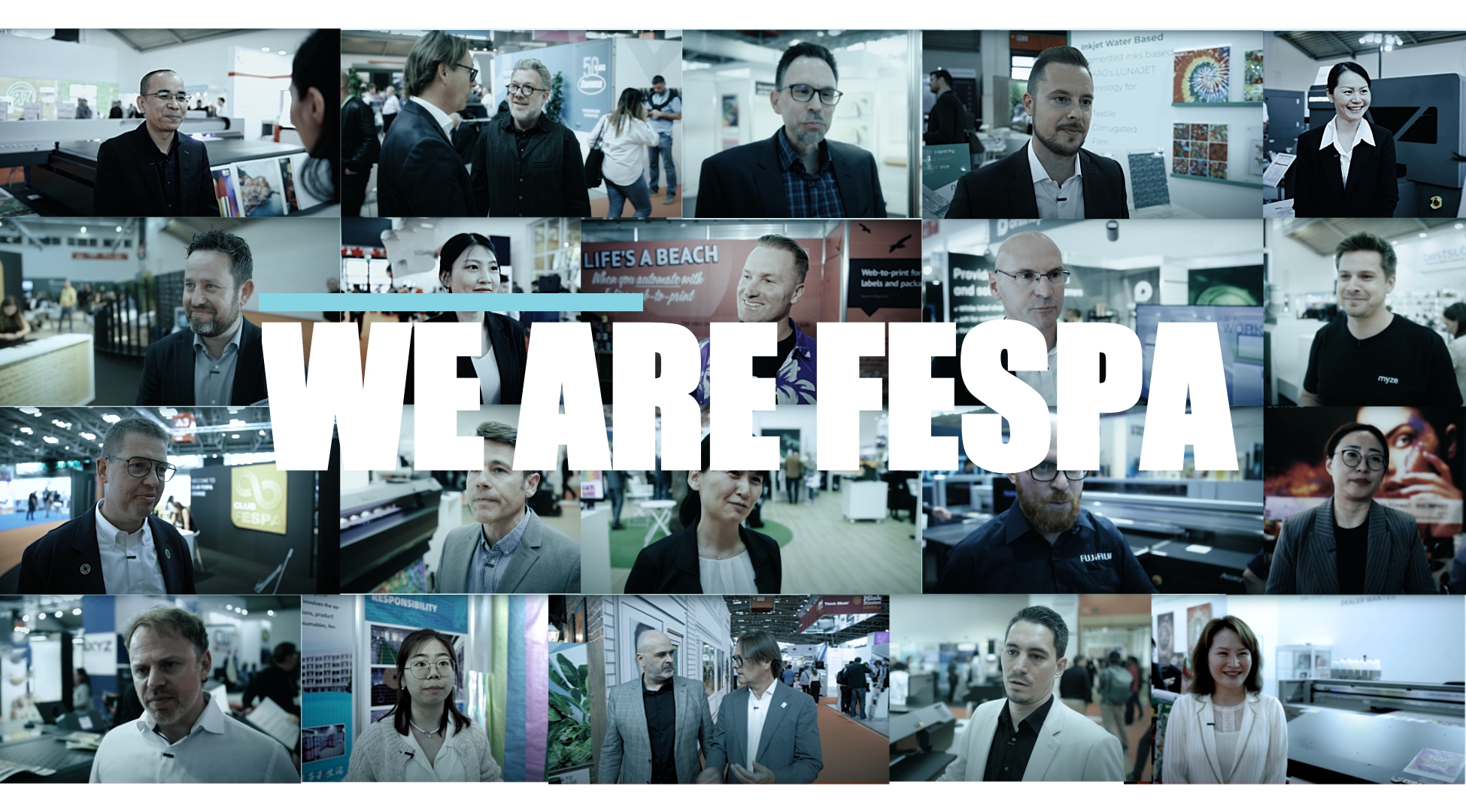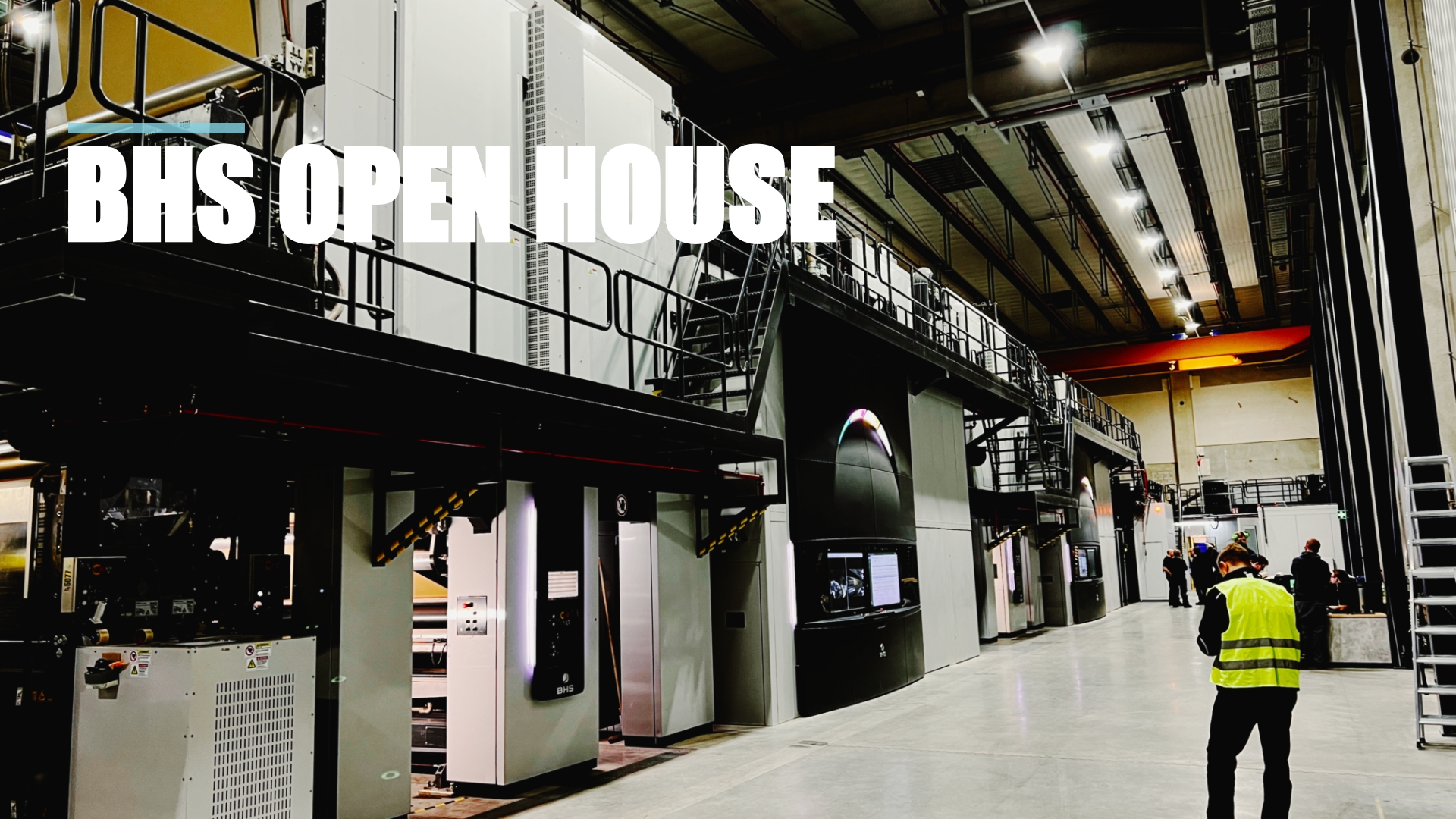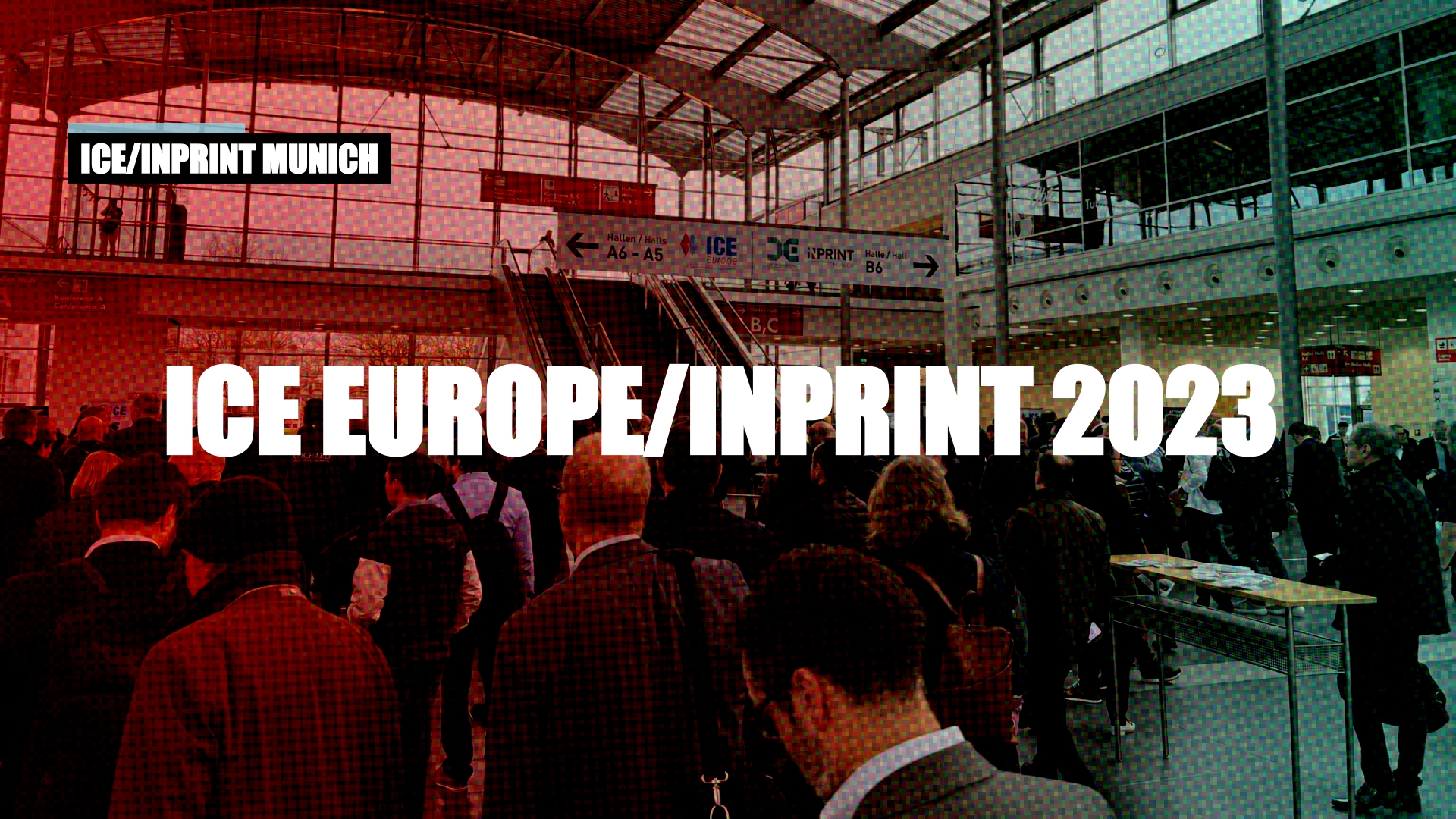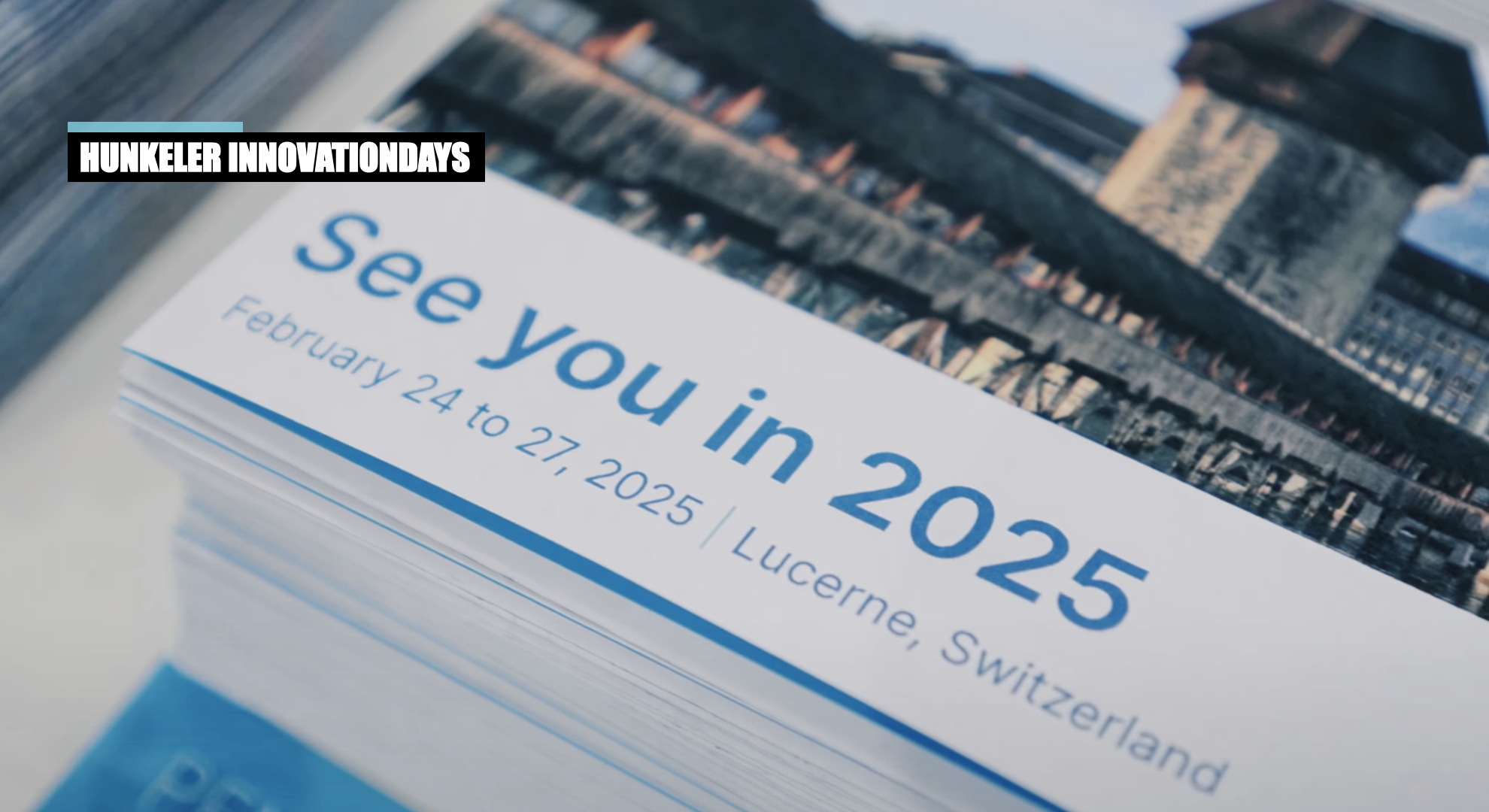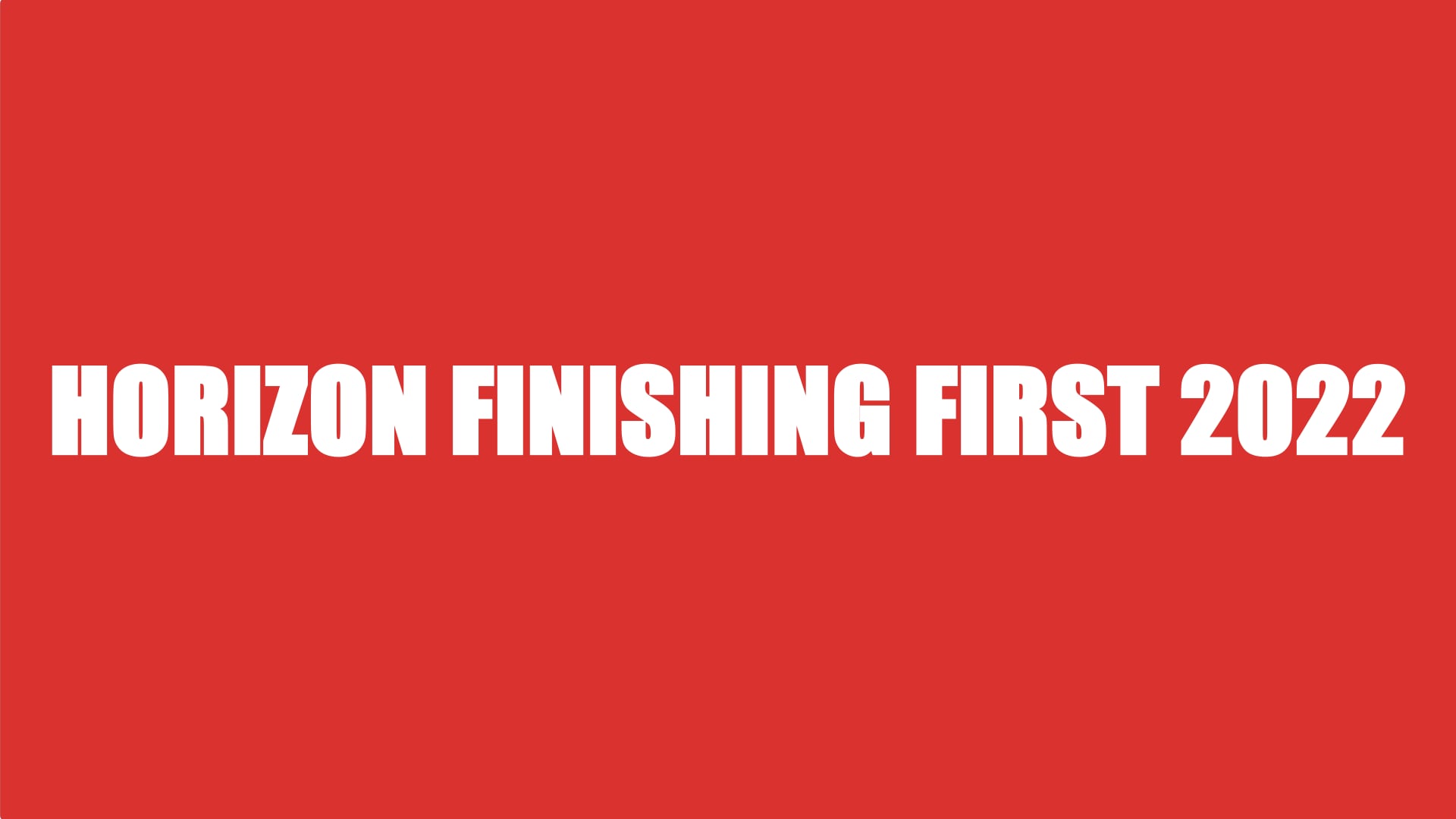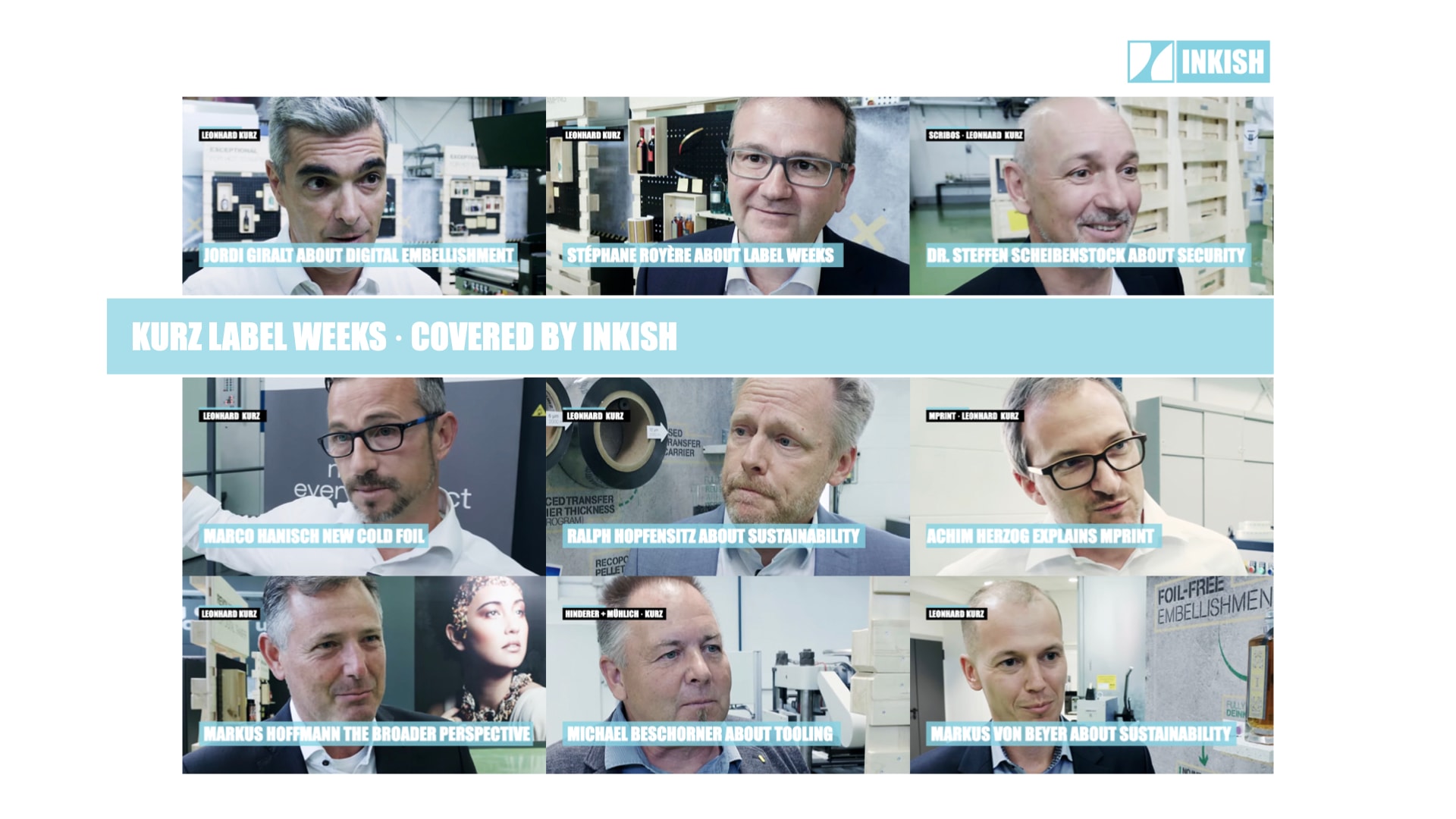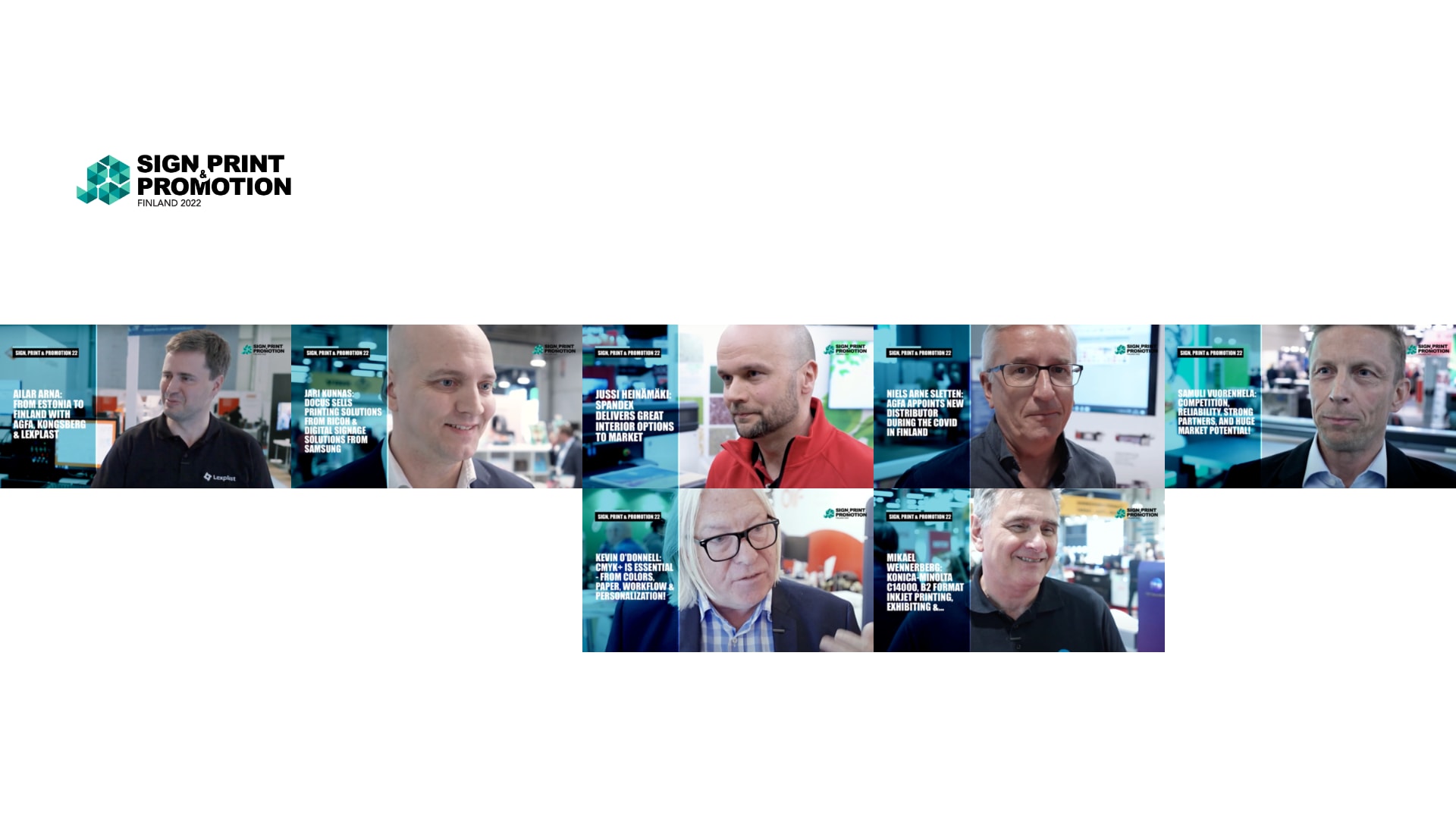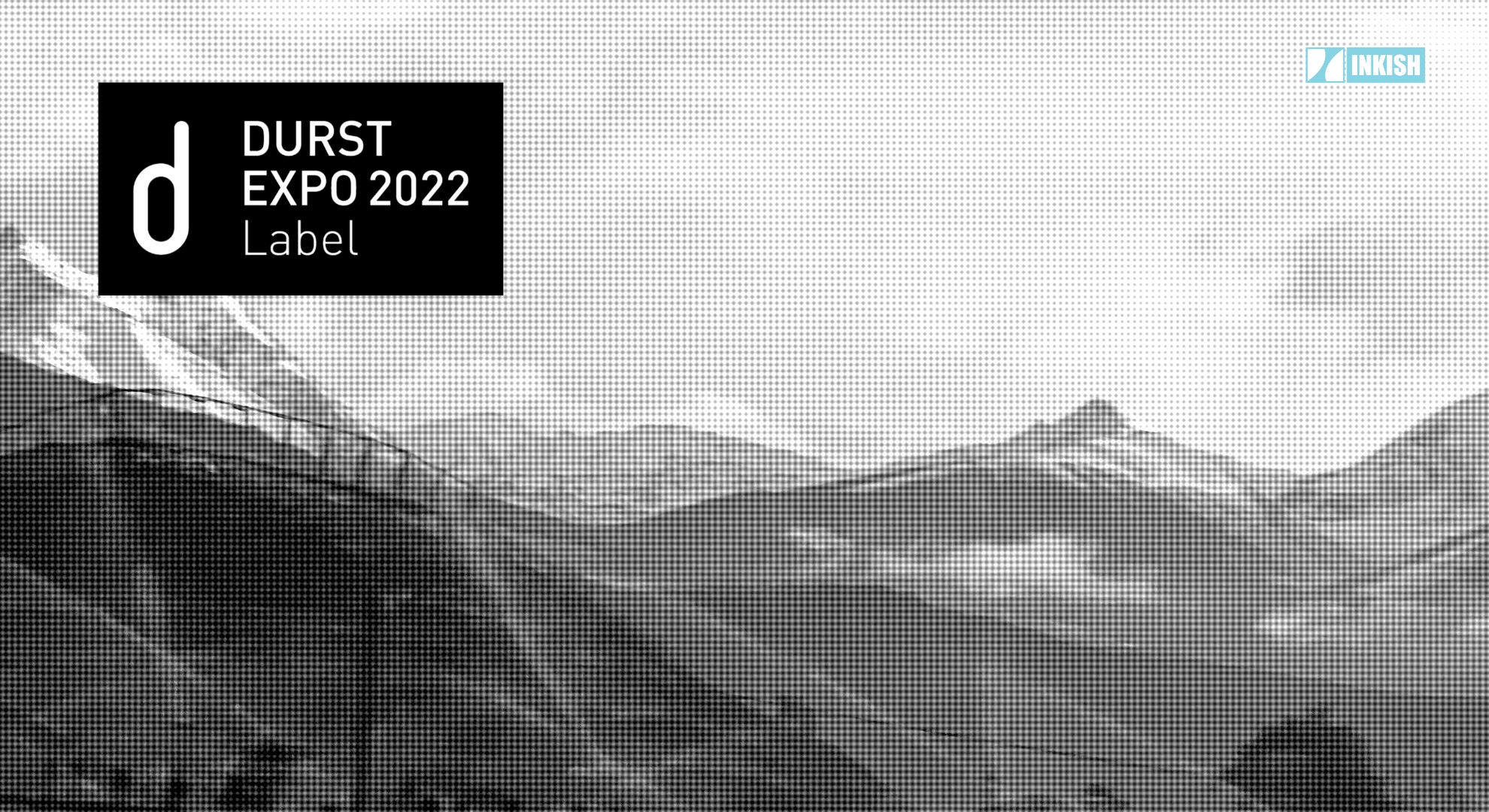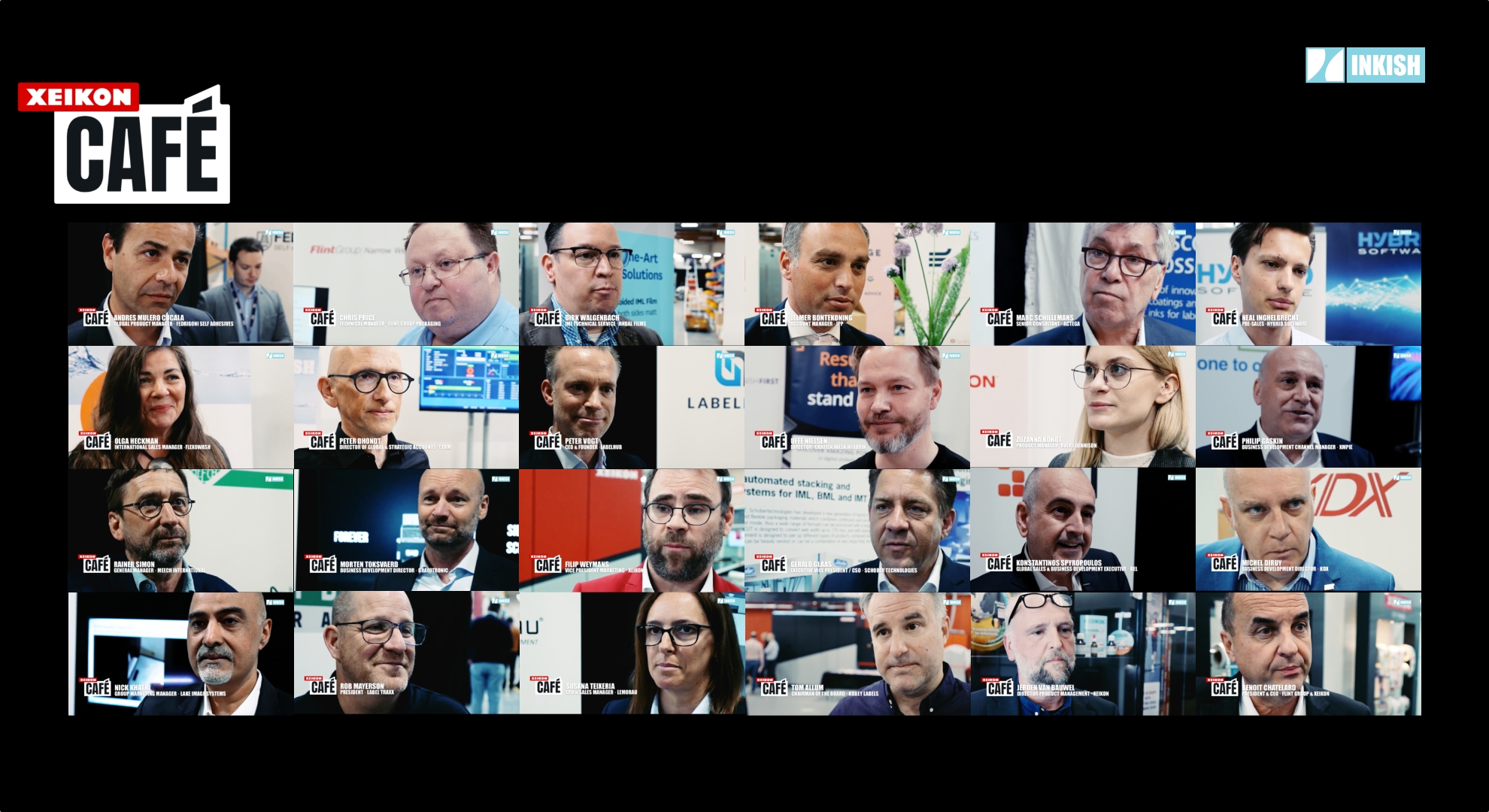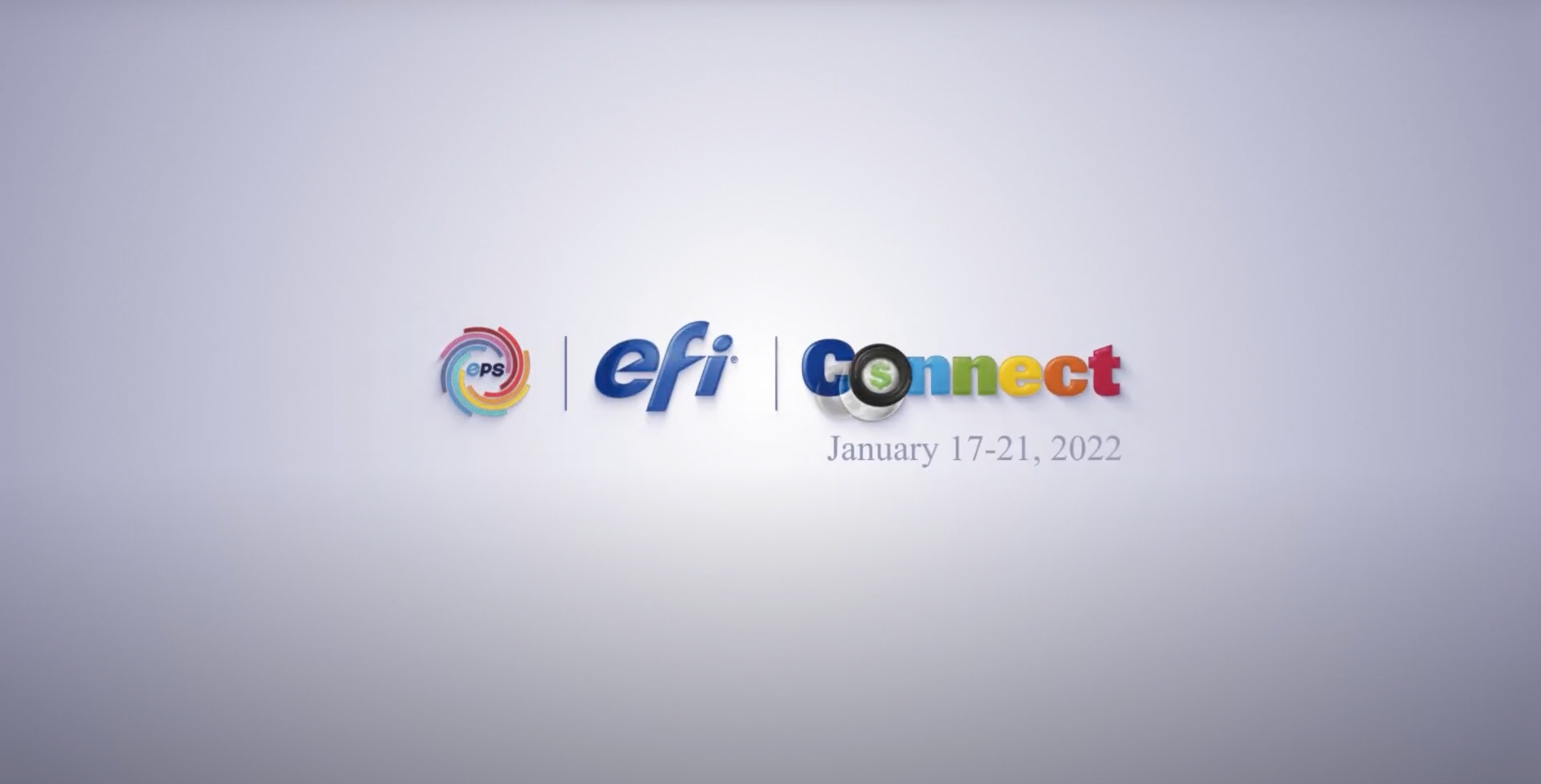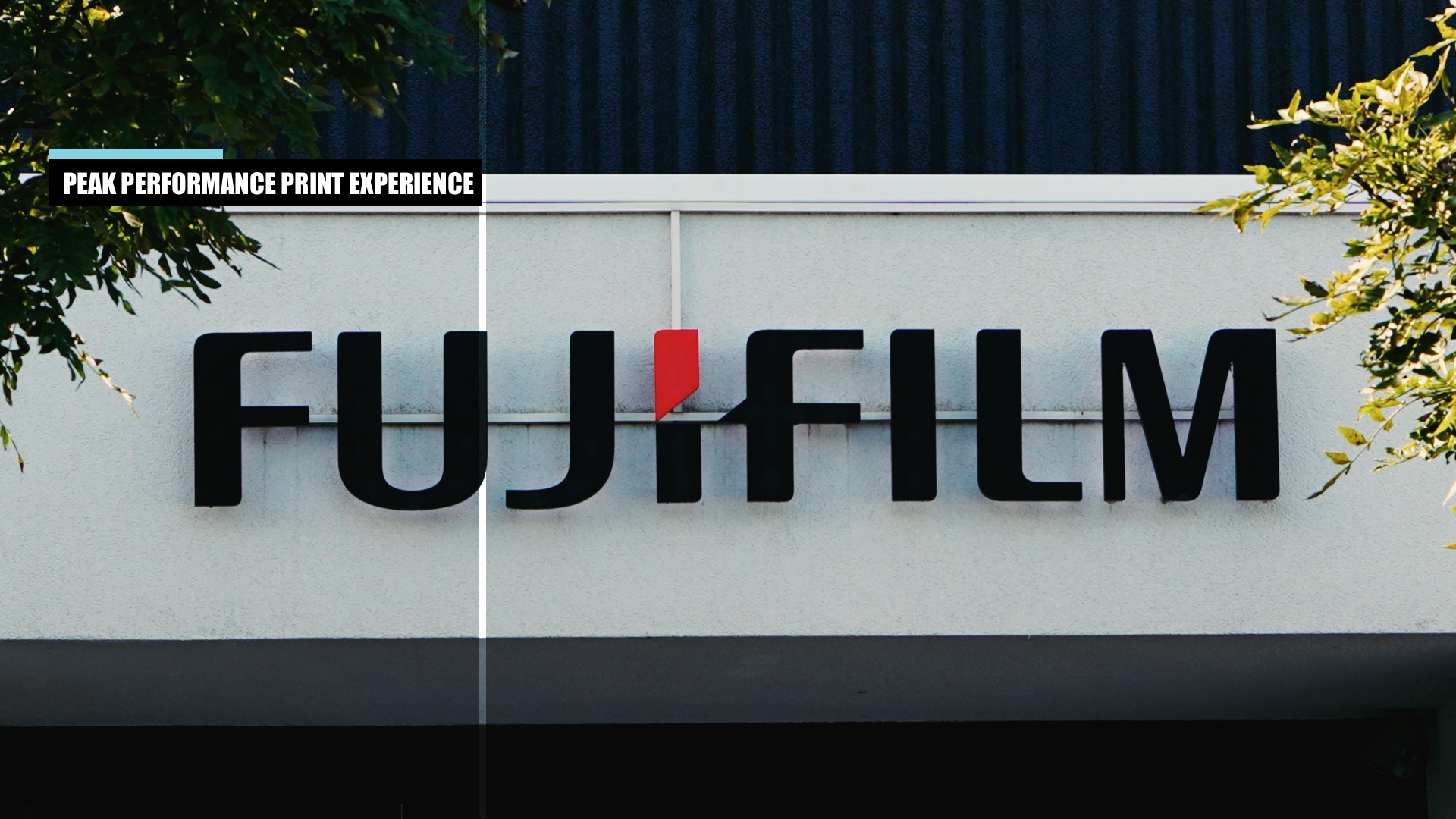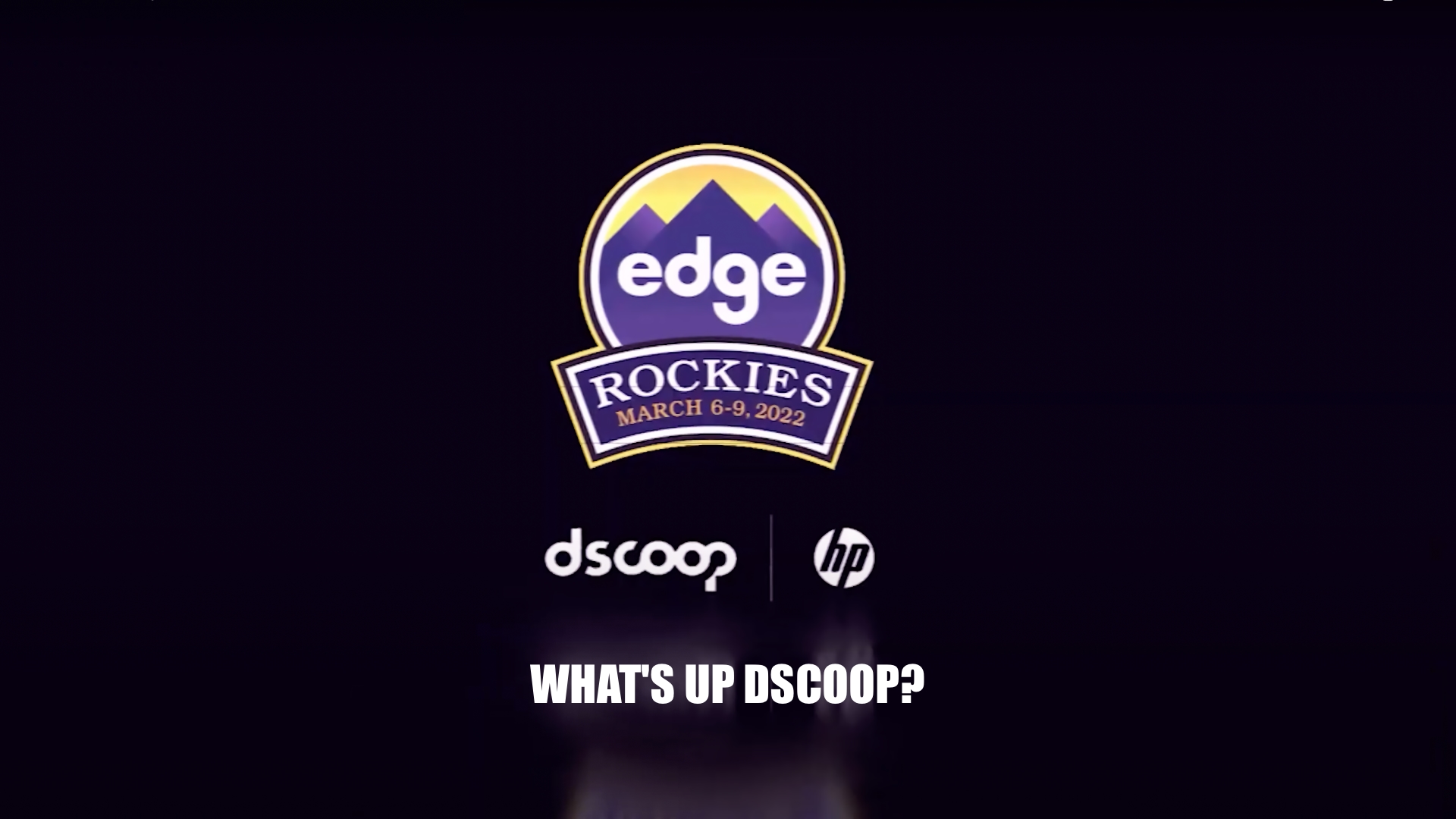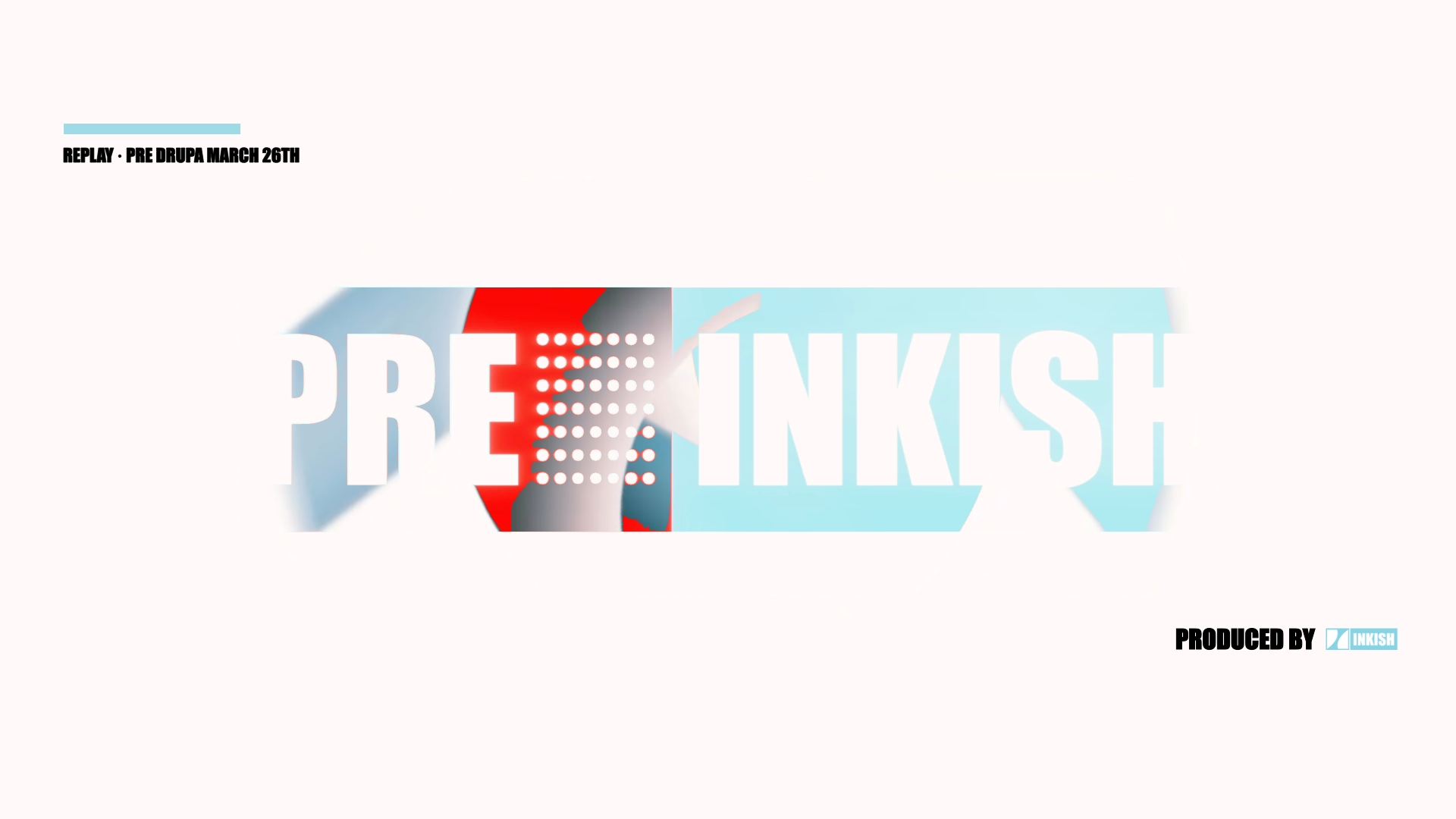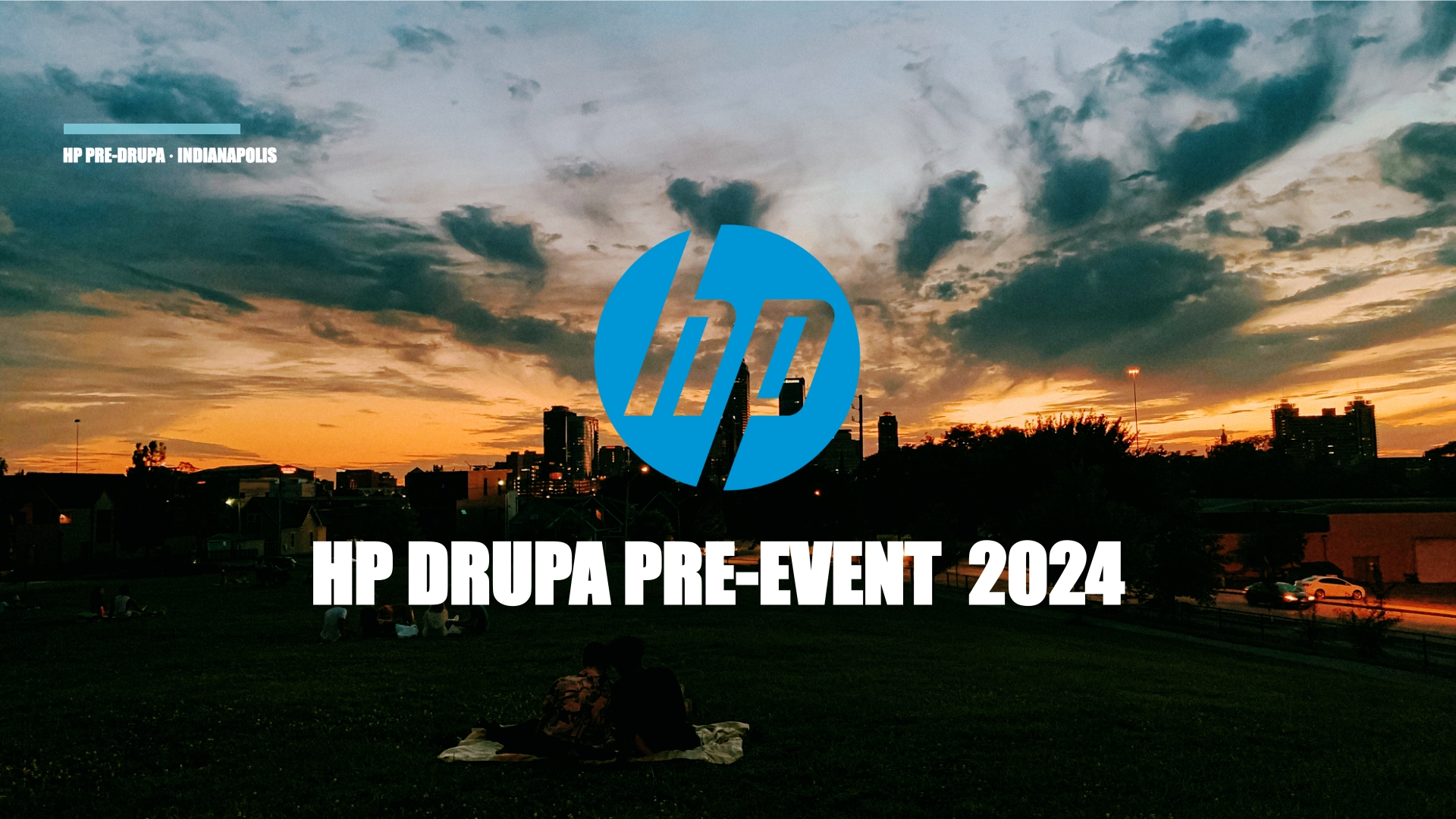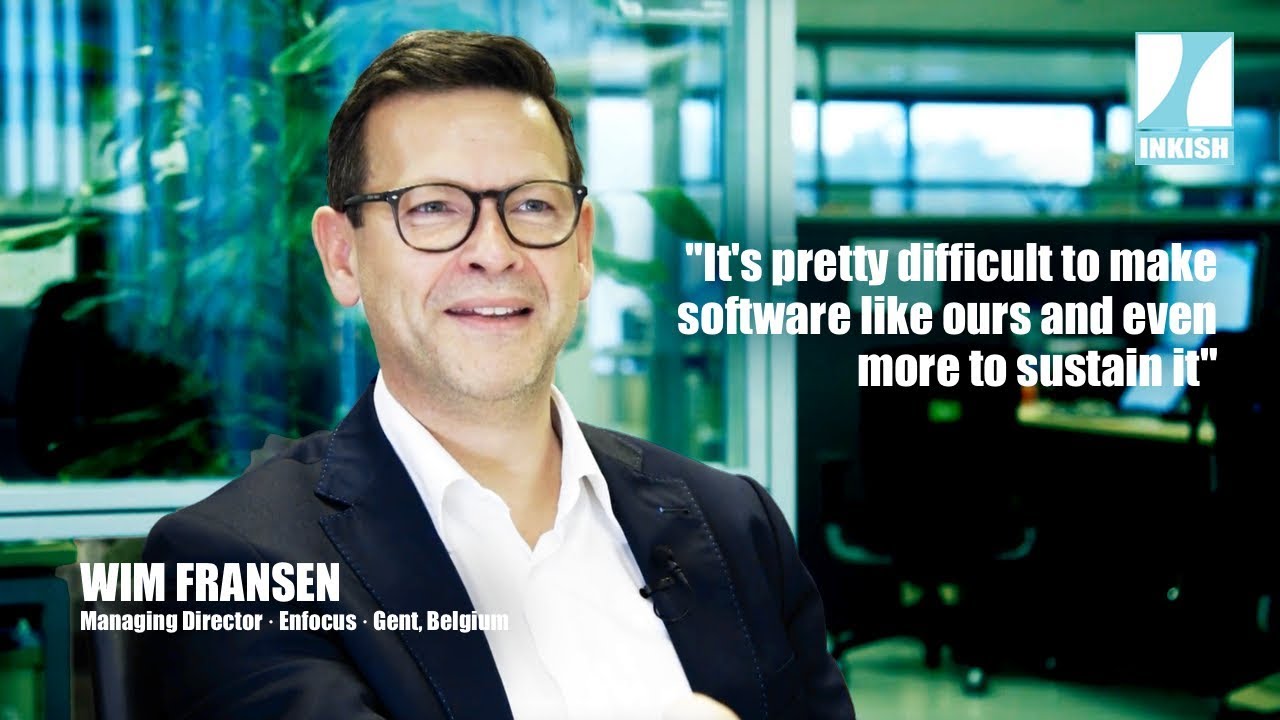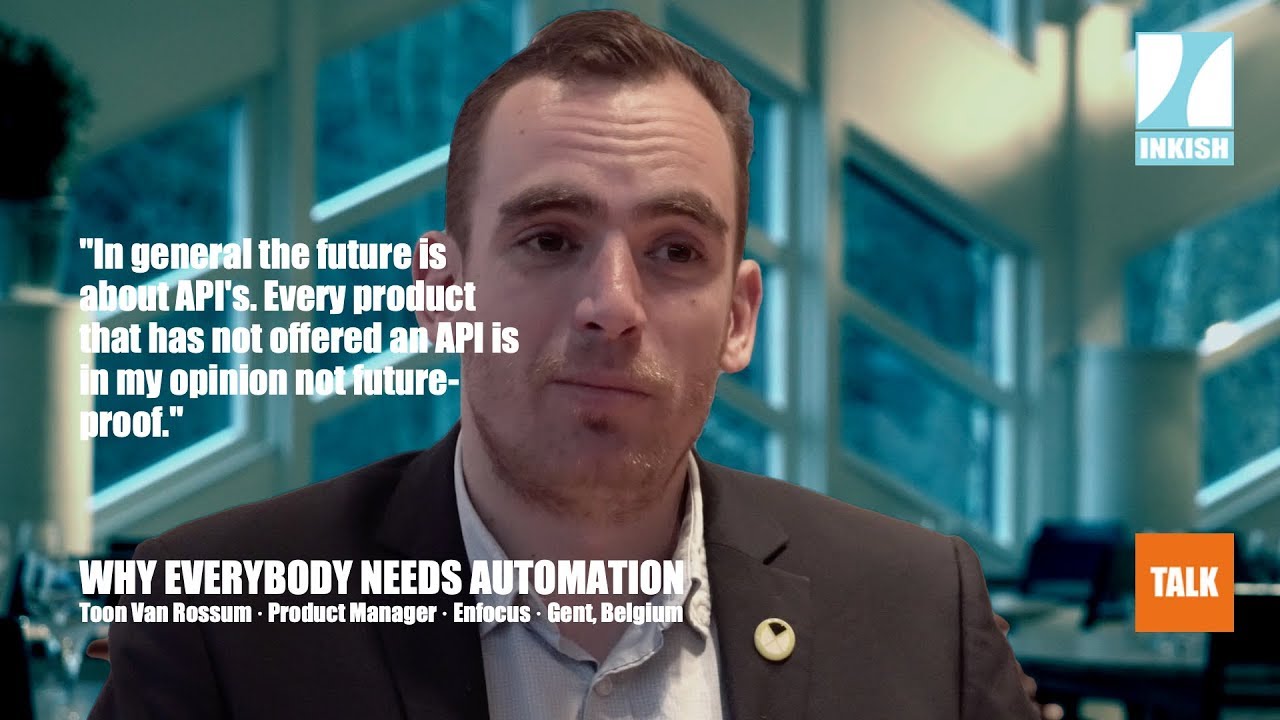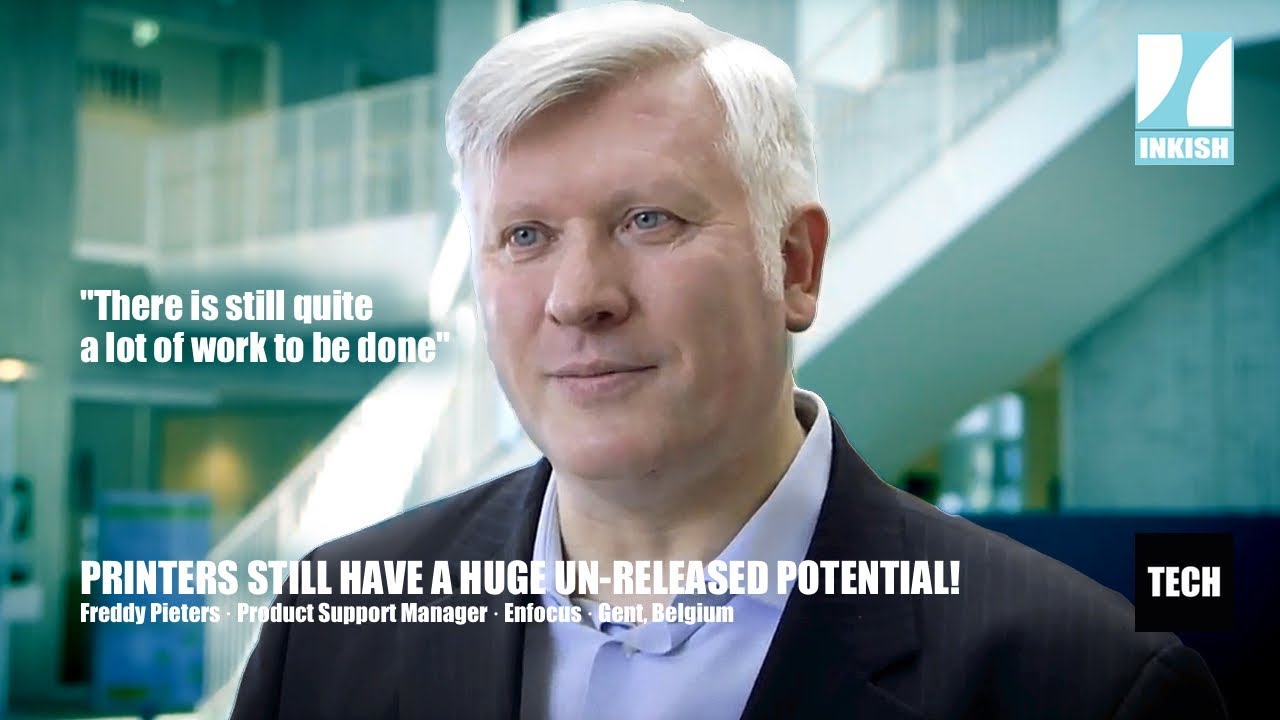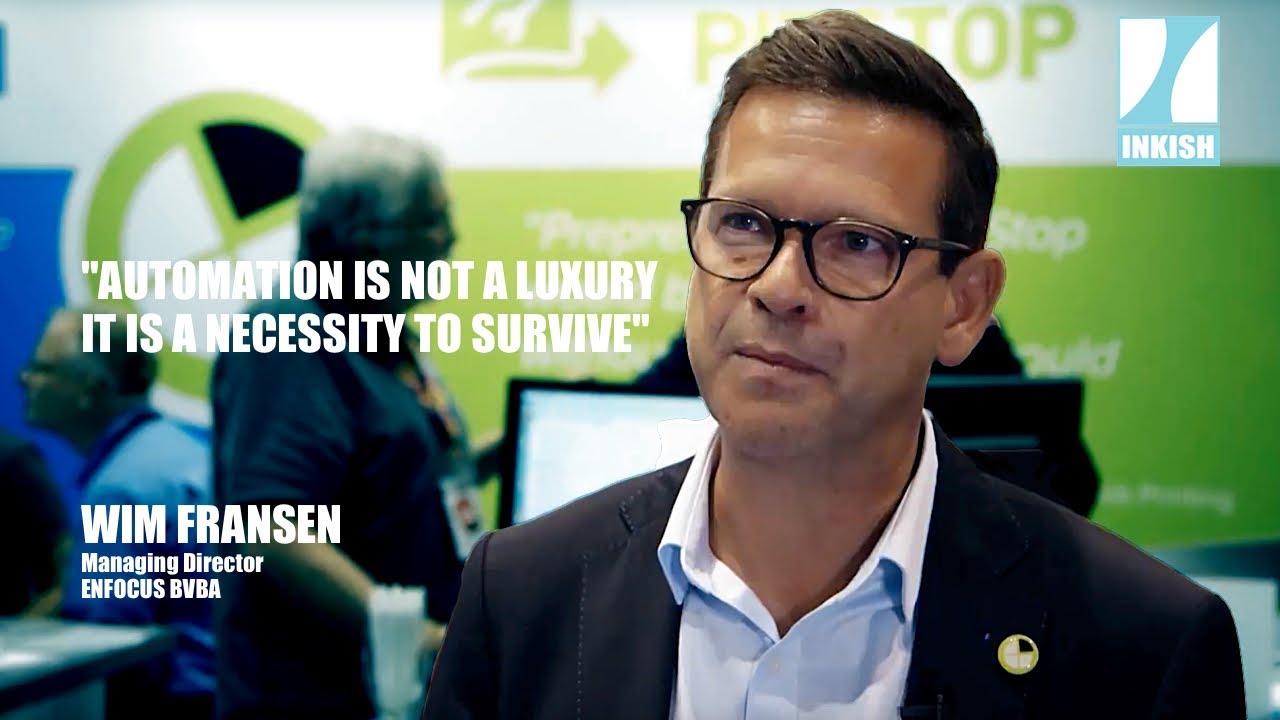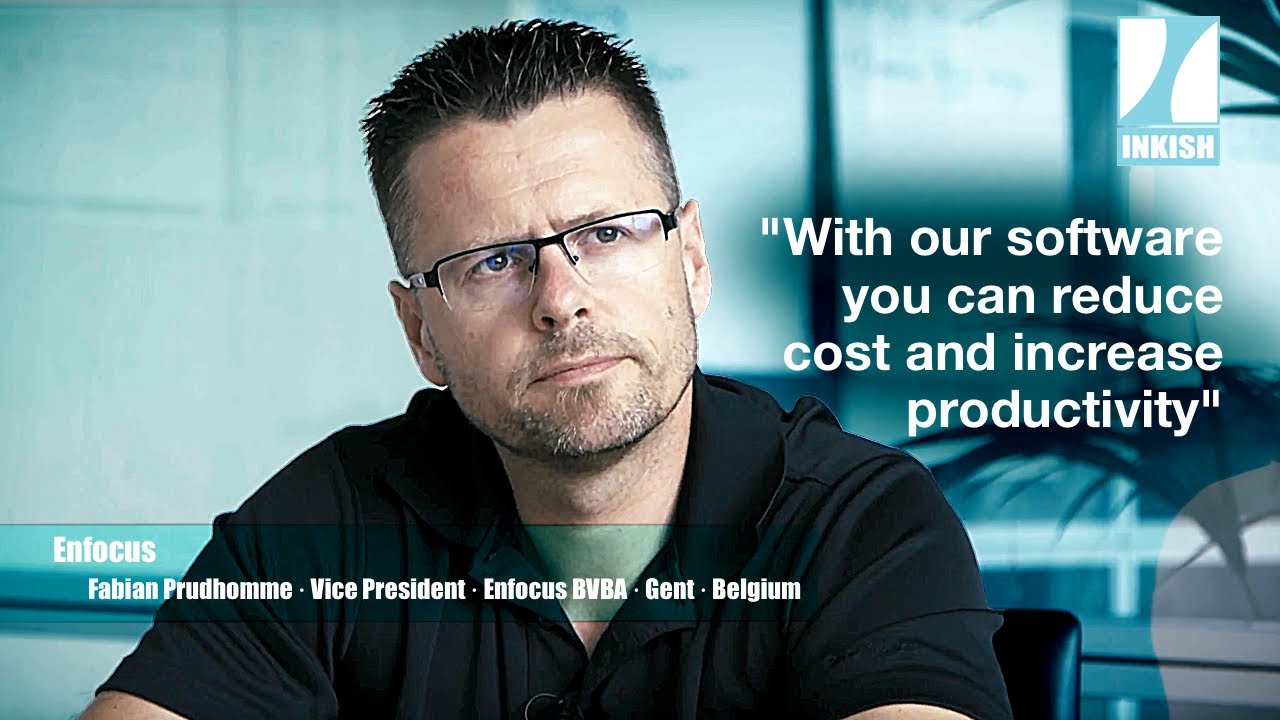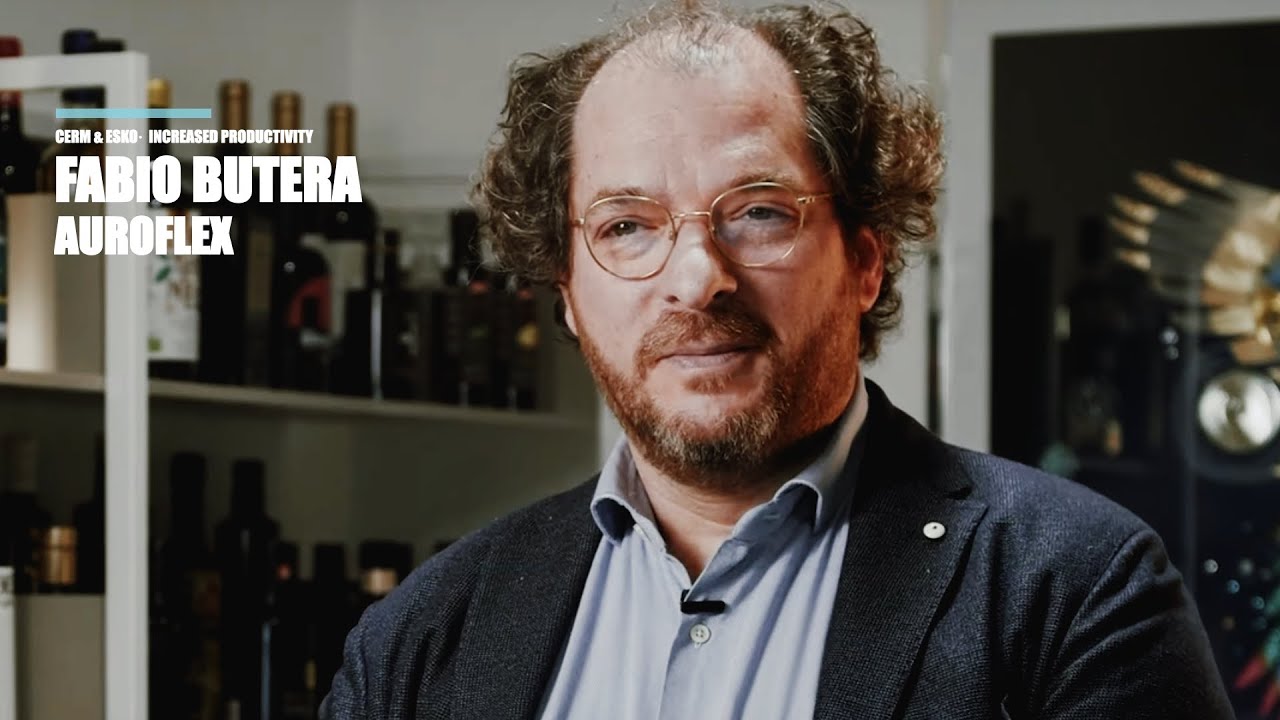INKISH proudly presents: Wim Fransen · Managing Director · Enfocus · Gent, Belgium
In this CONVERSATIONS Managing Director Wim Fransen from Enfocus have a conversation with editor Morten Reitoft. In this 11 minute program, they talk about the DNA of Enfocus, how to remain passionate about your work even when you change position and also about a shared codebase, future development, and expectations in general. Wim Fransen is passionate about his work and it was a truly great pleasure to talk with him at the HQ in Gent, Belgium.
If you look at the software you’re doing is in my opinion just fantastic software. I maybe look more from the, what it outputs, but is it difficult to make that kind of software or …
Yeah, it’s pretty difficult to make that software. To make it is one thing but to sustain it and make sure that it works on all platforms, is reliable, doesn’t contain any defects, at least not obvious ones, is really a challenge. That’s why it’s called software engineering. It’s not only creative. There is a lot of structure to that.
So when you develop software, I mean you have like some, in layman terms you have like there’s something in the computer that should work, but what I experience as a customer, it should be easy, right?
Yes, that is indeed, has changed a lot from the past days when I was working user friendliness, usability. People don’t want to invest the time to do too many clicks and so forth. It’s not enough that the software works. The software has to really help the person, it has to be easy, it has to be straightforward, it has to use concepts that are natural to humans, so the human machine interface, that is something very, very important, that’s something where we put a lot more emphasis on that.
Let’s just assume that you have a like a meeting with your programmers and UI, user interface developers. Is that something that you also have as part of the agenda say make it as easy as possible to use because we need to be saving our resources on education and things like that.
Yes, the way we do that we actually start from what we call a user story. We talk to the customer and we make that into a user story, and that user story has what we call acceptance criteria, when is it good enough and user friendliness and performance are all things on top that the base layer is like it should do this for this reason but then it should do this with this a certain performance, it should do this and be the easiest possible.
But isn’t that like, isn’t that much more like in testing and development, or is that also in relation to the data uses?
Yeah, that starts with a description before actually we have developed anything we describe the user story and its criteria for success basically, and now we develop that and then ideally we show it to the user again and validate whether what we have developed actually meets that. So historic developed program, so we still have a lot of things also to rework that use concept et cetera from the past that were not so easy.
Yeah, because you need to comply to all the, I mean if you have like an old installation, you cannot just expect people just throw it away.
That is indeed. We have a very, for example on PitStop very loyal customer base that is used to doing things in a certain way. If you would radically change that you might alienate those users.
Quite interesting because I mean, I guess that, most of our viewers, they rarely get under the motor helmet on the software they’re using, and that was why I was interested in whether it’s difficult to make because of course you have competitors here at Enfocus. I guess that you have got your pretty good market share, don’t you?
Yes, especially on the PreFlight and PDF tools. It’s not just about the skill to make software, the PDF it’s also the deep understanding of how does that formats works, what are, you can quickly make an application that does something with PDF, something that assures, a tool that assures that what you get out of it is compliant with all the details of the PDF standard that takes not only all the programming in but also a lot of experience and in depth knowledge of that domain. I think that’s really the DNA of Enfocus.
If you look at a program like Switch and PitStop, do they have a shared code base or is that two completely separate programs?
No, they definitely share codes, that really under the hood is a set of libraries …
Does that mean that …
All the PDF logic that is in one is obviously also shared with the other.
Does that mean that if you let’s say one day decide to develop a new kind of software that some of the basis, of course depending on what software of course but does that mean when you don’t have to be from a zero starting point if you decide to go in certain directions?
Yes, exactly, at that core of PDF processing for example some of the fundamentals of work flow automation we could reuse in a new product. What typically changes when you make new products is the interaction with the user. For example, if you would move from a desk top product to more of an online web based software, you can typically still reuse a lot of the same code that actually does the meat of the work but it’s then the way it interacts with the user there is a lot of development to do in that area. You have been a new managing director here since almost a half year … Half year now, yeah.
I was wondering when you have this passion for this software and the products and what they do, can you also have the same passion as managing director? You need to deliver results, I guess there’s some shareholders that want to make money on you, right?
Yes, that is a very good question. To be honest when making such steps in my career I wonder will I have the same passion about creating software and then having fun making as I will have with business challenges like how do I make the revenue work, how do the financials work but in fact I found out doing it that I’m equally passionate if not more so about it.
In a position like you, you have power to actually do things, right in a completely different way being in a nutshell but you’re not a senior decision maker. It must be fun.
Yeah, that is fun but it’s also a big responsibility, yeah.
You have to make the right decisions.
Definitely you rely on your team luckily I have a very good and strong team that helps me a lot and forgives my ignorance on some things.
When you look into, the results the financial results that you need to deliver do you think there’s still a huge growth potential for Enfocus?
Yes, I definitely think there’s growth potential. Last year we made good growth. I don’t think that is because of me, that was because of good strategy that was in place. I might get some credit for that. That’s good but …
When the new strategy that you spoke about is finished and implemented that you can take a little bit more credit for the results if they’re good, right.
Yes, indeed and that’s also a bit of the risk aspect of it. I like that it’s by getting outside of your comfort zone, taking some risks that the rewards can potentially also be larger.
What I like about the way that you say it is that you are honest, that about that it’s not like your effort or your predecessor’s effort, it’s the team effort right.
It’s definitely team effort.
Is that part of the DNA of Enfocus?
Yeah, I would say part of the DNA of Enfocus is fun and team spirit, working hard, playing hard and achieving things together. That makes you feel like you belong to a team and that’s important for me. It’s not a one man show.
Does a company like yours need to develop new products or can you just survive on doing what you have been doing always?
No, at a certain point you have to also look into new product. That’s something you have to carefully look at. It’s not per se a necessity. I think we can do still achieve a lot by making the products PitStop but definitely also Switch better, improving them, adding extra capabilities on top of that.
You have a very open attitude towards showcasing the benefits of using your products. That openness is not so much seen in the industry. I think that is also starting point because I think a lot of new users and younger users they have a huge interest in having that openness.
I agree.
Why is it that development and things like that has to be kind of encapsulated until it’s released?
We have two very successful products, more actually, three. There is risk involved in investing in a new product direction. We have multiple options, which we are evaluating and need to make sure that we make the right decision because we have a lot of customers that depend on it.
They have some expectations that it will work, right.
They have some expectations on how software from Enfocus works.
You have a background from Esko actually so you know also your sister company very well and I mean do you have like things that are, do you develop things together?
Yeah, well develop things together partially but we definitely share base technology.
Is that because you also mentioned to me that for example we are making a film from The Bernard Group and you said that this relationship that you start to form with Tilia Labs and how they have integrated with Switch that even though it could be a competitor it is still enormously beneficial to have the openness also towards other …
Yeah, I believe so. I don’t believe that especially commercial print, large format that a single vendor can make an end to end work that solves all issues and challenges of the customer in the best possible way. To achieve that I really think an eco system where multiple vendors can come with best in class solutions that fit well to each other is the way forwards, let’s say.
Wim, it’s been a pleasure to talk to you.
Thanks Morten, pleasure, likewise.


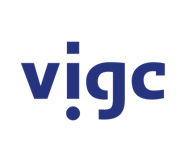















No Data Found.
Content for this section will appear here once available


